Would you ride with me? Should I ride with you? What does it take to be a great riding companion, or even know one when we meet one? Meet Bubba Eisenhauer, a former US Army Ranger officer who knows a thing or two about rolling with people you can trust. On the road as in combat, skill and reliability turn out to be mere table stakes. An inspiring conversation that reveals what being a great riding buddy really means, and the rewards that can only come from sharing what Bubba calls “one of the most beautiful things in the world.”
Show Notes
Had I not already done an episode or two on this subject, this one could just as easily have been about family. Here’s Bruce “Bubba” Eisenhauer in his own words: “I am blessed to have a wonderful family and have lived an adventure-filled life. I was a collegiate football player, high school teacher and athletic director, Army special operations officer, public speaker, and more. I also have a slight obsession with motorcycles. Despite that, the most important part of my life and the most extraordinary adventure yet is being a father to the world’s most incredible little boy.” When someone has such clarity about what matters and still makes so much room for motorcycles in their lives, you know we’re all onto something. If you want to connect with Bubba, you can find him on both Instagram and TikTok as @ironfam5. He wanted me to let you know that he’d love to hear from you, and promises a swift reply.

Bubba Eisenhauer and his current ride, a 2021 Harley Davidson Road King Special.
The title of this episode was, of course, a reference to the legendary Honda ad campaign of the 1960s. Maybe I’m overthinking it – it happens – but I thought it was perfect for a couple of reasons. One is the obvious tribute to great riding companions everywhere. The other is that Honda’s campaign is widely considered to have single-handedly reframed motorcycling as a social activity, effectively counterbalancing the darkly antisocial reputation it had at the time. Motorcyclists may still pantomime being antisocial (because it’s cool and fun), but I think we have become one of the most community-oriented pastimes in modern life. If you’re interested in the history of that Honda ad campaign, here‘s a short primer.
This episode really was almost about motorcycling’s introverts. It’s a thing, it turns out, in case – like me – you are one and worry that you’re weird… and the word ‘introvert’ probably describes more of us than is true of the general population. Maybe by a lot. You’ll find tons of discussion of this subject online, but this SlideShare presentation caught my eye. It’s from a talk that Griff Allen gave at AMA Vintage Days in 2016 and, although it is inevitably dry in that PowerPoint way, it makes a strong case for why introverts are drawn to motorcycles and what they can do for us. Check it out here.

You can buy this t-shirt on TeePublic, the same platform that sells TML merch. Coincidence?
Early in our conversation, I wanted to make clear that I would never literally compare riding motorcycles with the professionalism and sacrifice it takes to be a soldier. That said, I thought it was pretty fortunate to learn not just from a soldier, but from someone who served in a unit that has so famously codified the military values of loyalty and personal responsibility. You can learn more about the Army Rangers here, and about their history here.
Like so many of this podcast’s guests, Bubba Eisenhauer found me rather than the other way around. As a listener, his two favourite episodes were “Episode 46 – The Best Medicine” and “Episode 32 – The Skillful Monk“. Both are worth a re-listen, if you ask me. Joe Leondike continues his work on the therapeutic benefits of motorcycling, and recently spoke at a conference for the International Journal of Motorcycle Studies. As for Ven. Kusula Bhikshu, his podcasts were a regular companion for me during the Covid years, but I had kind of forgotten how insightful and kind (and quoteable!) he was in our interview until I dug up my notes. I still get emails about that one. If you’re new to the podcast, it’s worth going back for.
Bubba shared a few more photos with me, which you’ll see below. They paint a picture of someone for whom people really matter, which squares with the man we met in this episode. It was this more than the ‘how to’ part of this conversation that really stuck with me. A few days after this interview, someone came by to look at a bike I was selling (Steve, the person whose Movember donation I mentioned in my opening comments), and to my utter dismay he recognized me from the podcast. Painfully shy, I didn’t really know how to handle the attention, until I remembered Bubba’s sage advice: “Be the person you’d want to meet.” I was probably still a bit stiff, but I tried. It was great to meet you, Steve.

Like so many riders, Bubba’s love of motorcycling and big American twins was inherited. Here he is with his dad and brother a few years ago, as he put it laughing, “trying to look hard.”
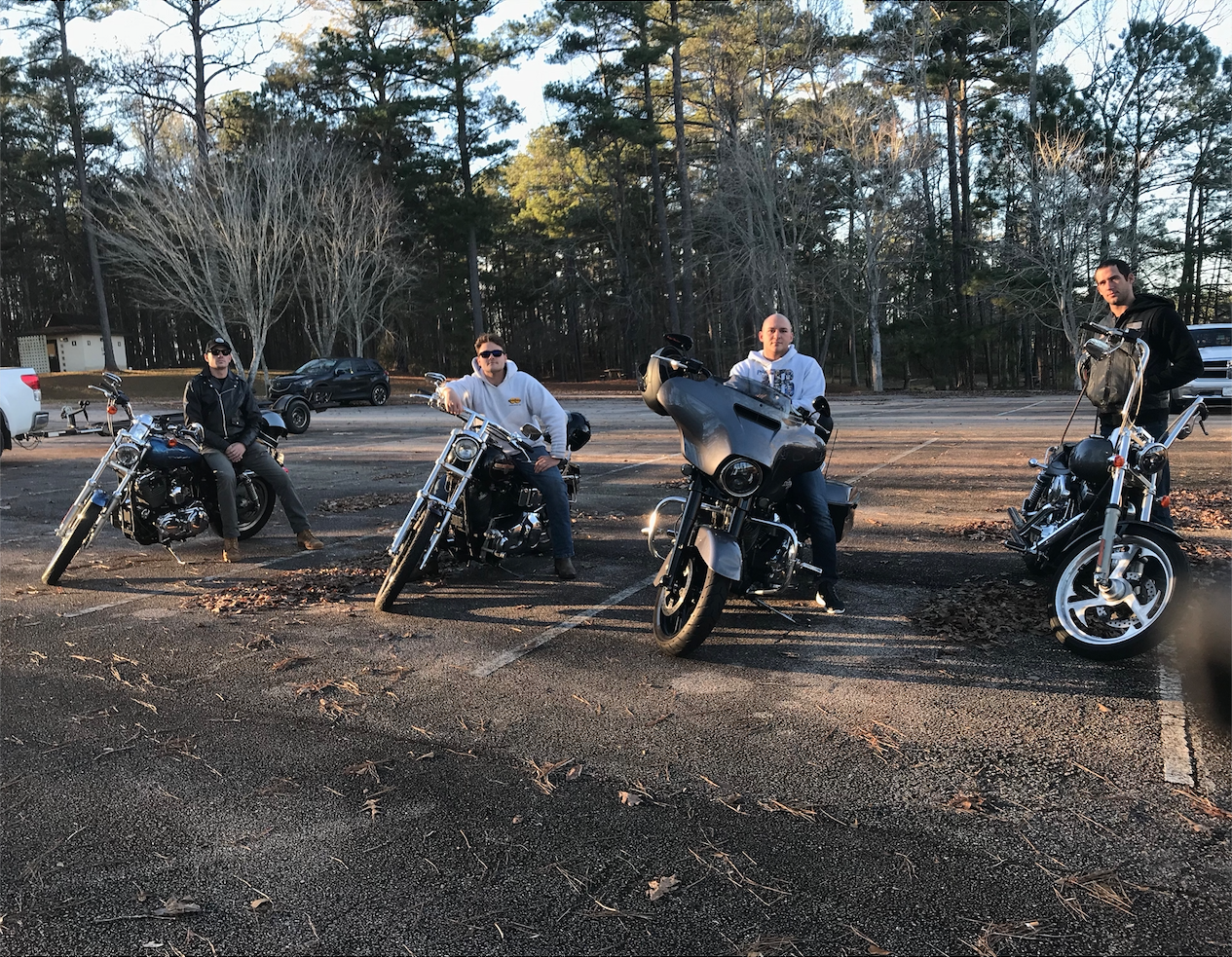
From 2018, Bubba and his other family, his “army brothers,” getting some wind therapy.

Bubba Eisenhauer showing the ropes to his son, “the world’s most incredible little boy.”
As always, the theme music for this episode was arranged and performed by Harry Bartlett. Harry released a new album back in December, I believe his first. You should give it a listen.
If you’d like to help keep This Motorcycle Life podcasting, be sure to visit the ‘Support’ page on this site. My heartfelt thanks to the few but generous folks who have already done so. And finally, a nudge to scrounge up a few bucks from the couch cushions and make a contribution to the Movember Foundation in the name of this podcast… just click on the moustache below. They could use all the help you can give, and you’ll be letting me know how much you value this content. Thank you!


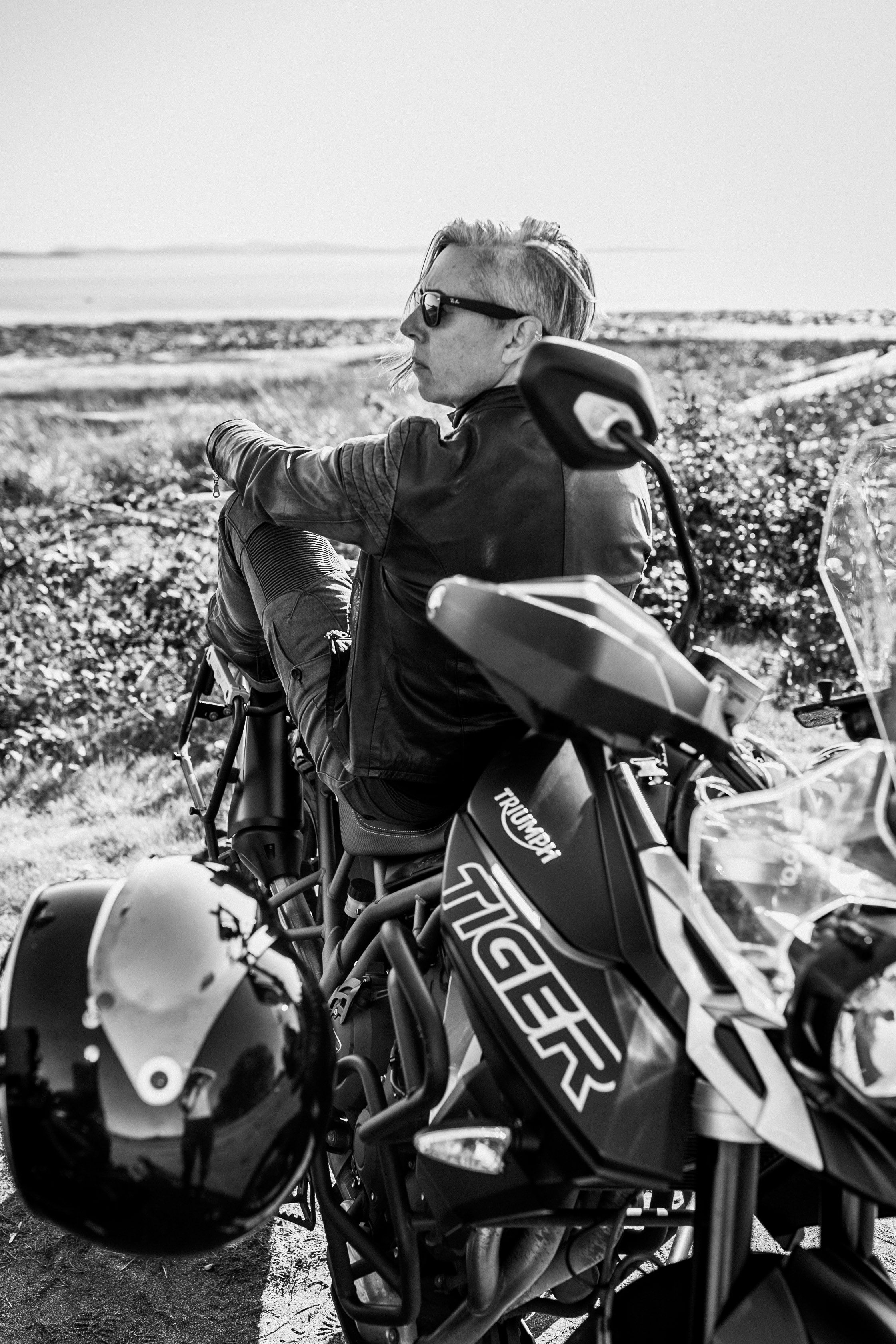
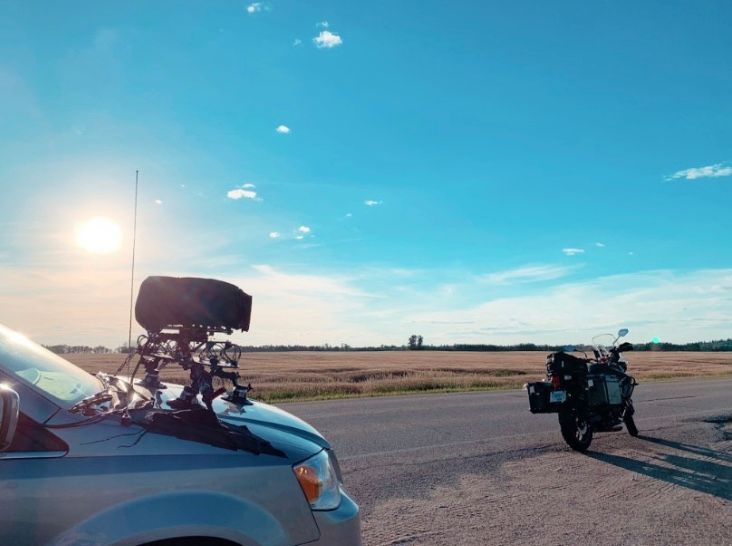
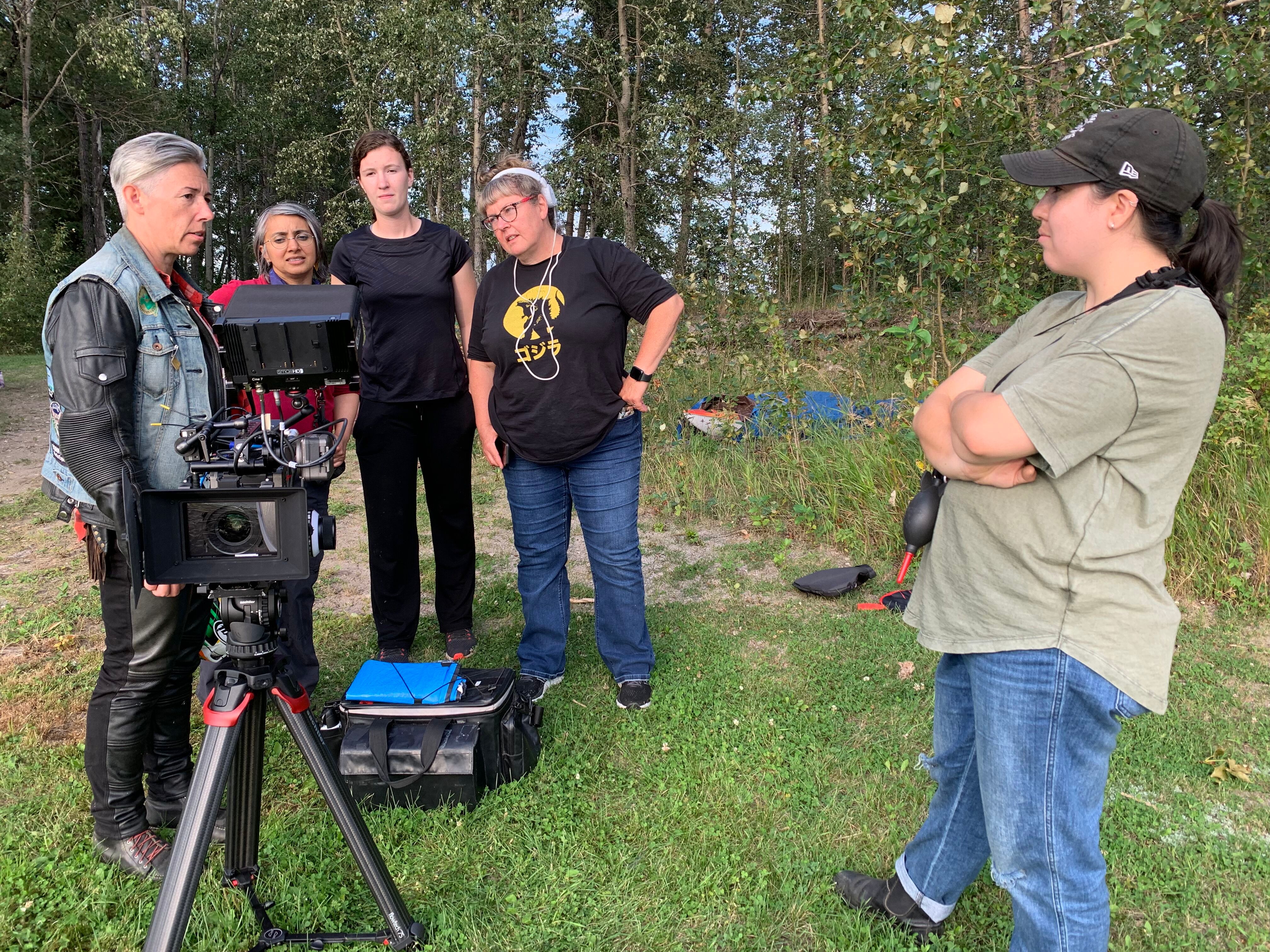
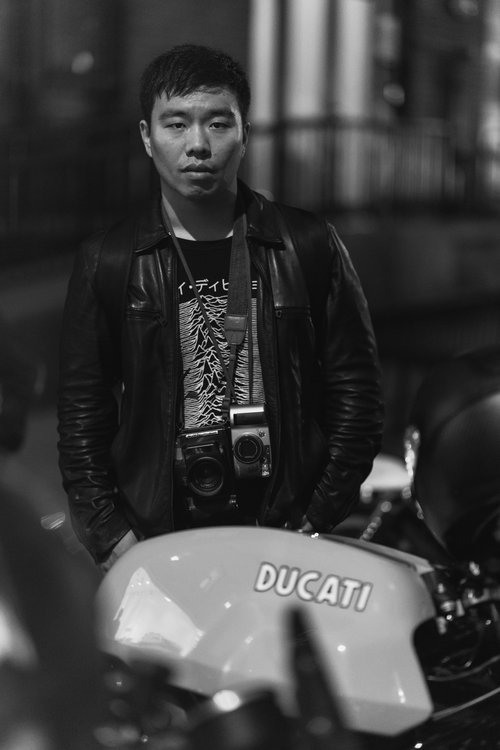
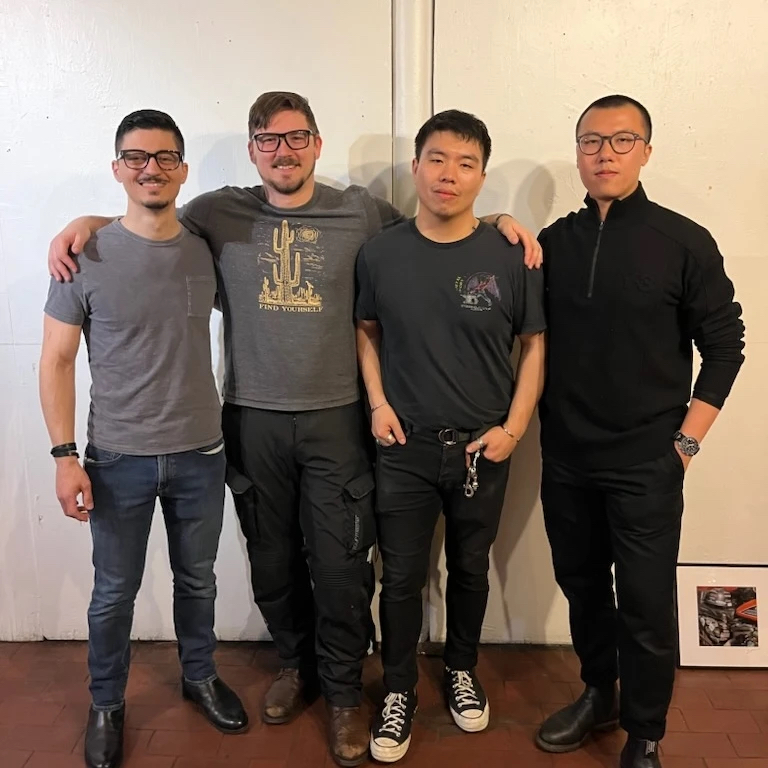
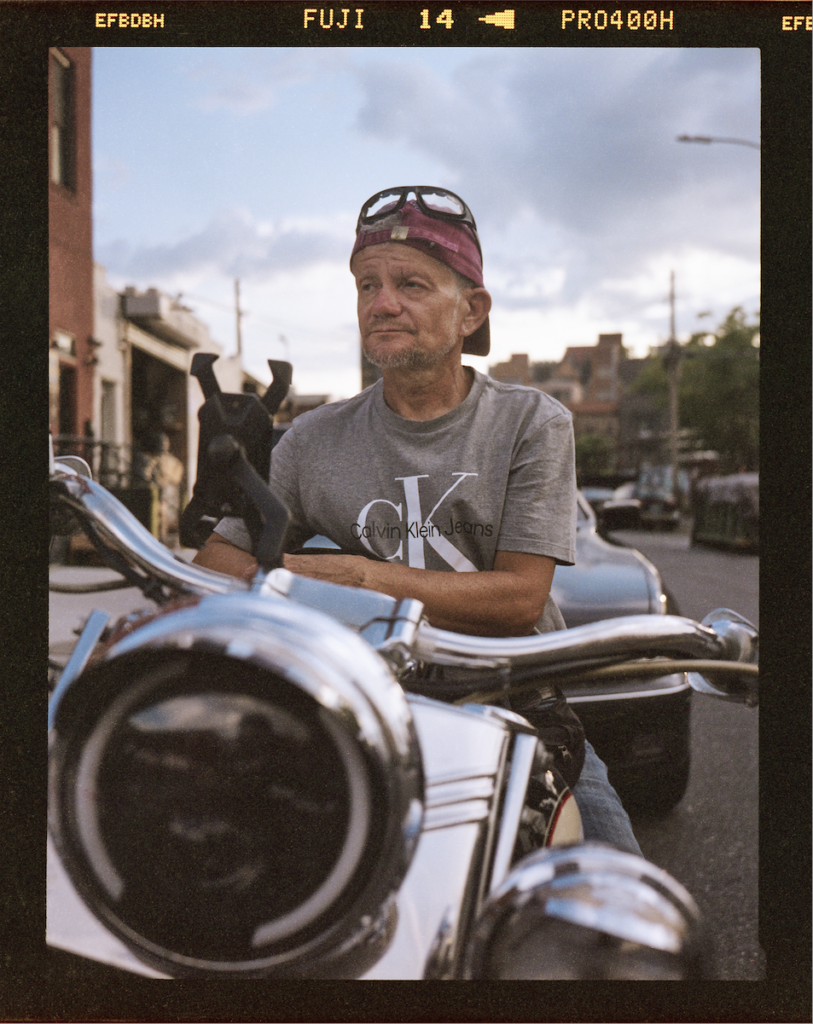
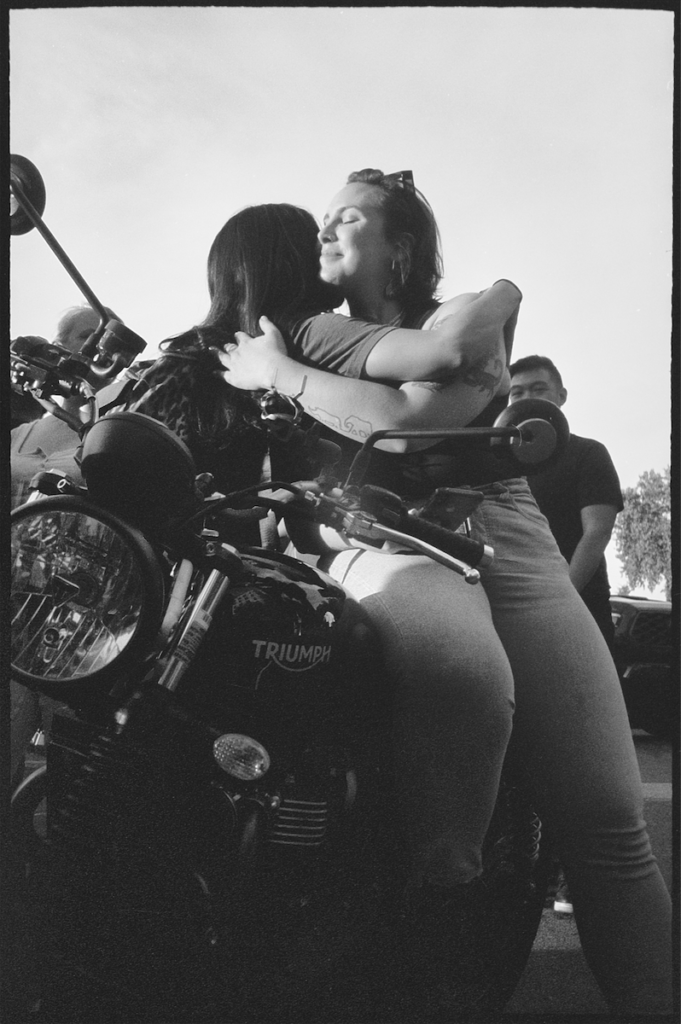
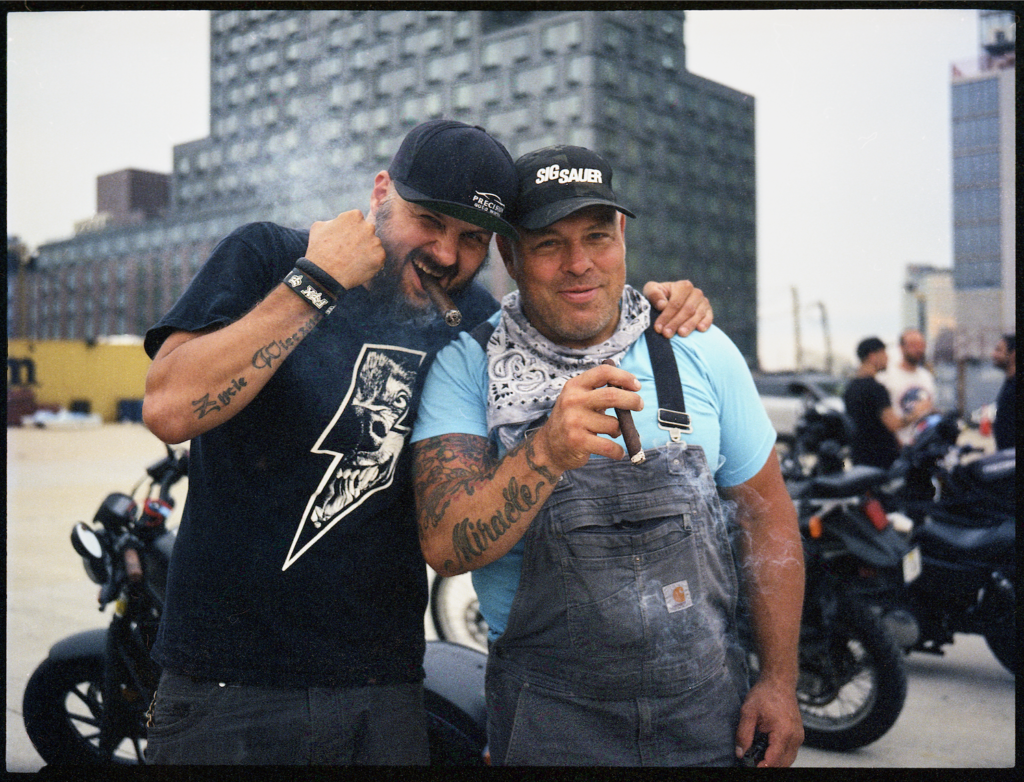
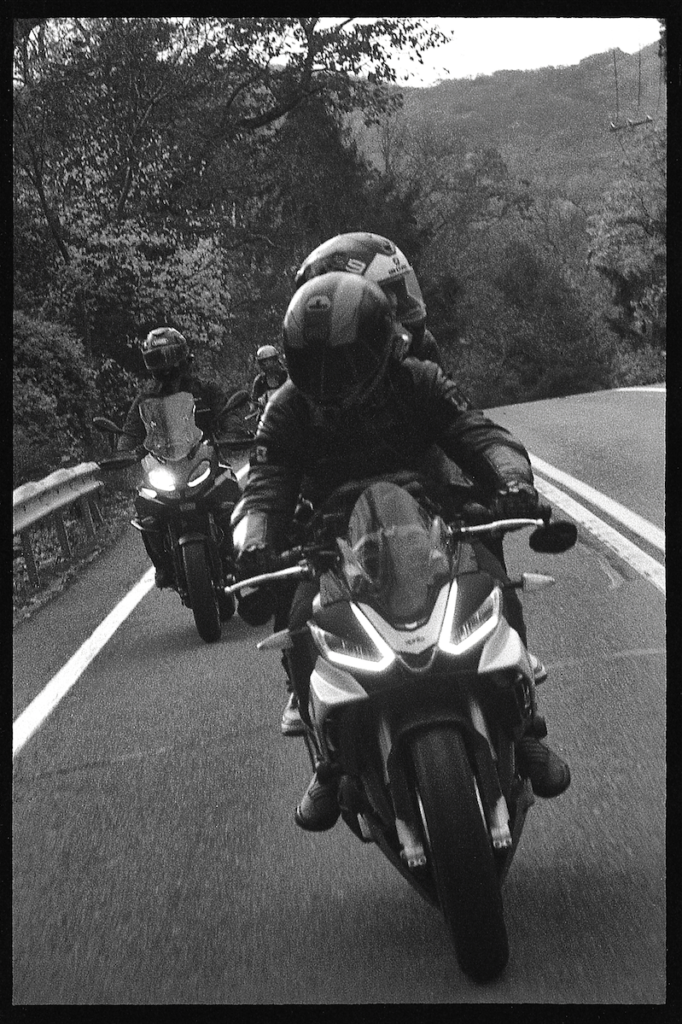
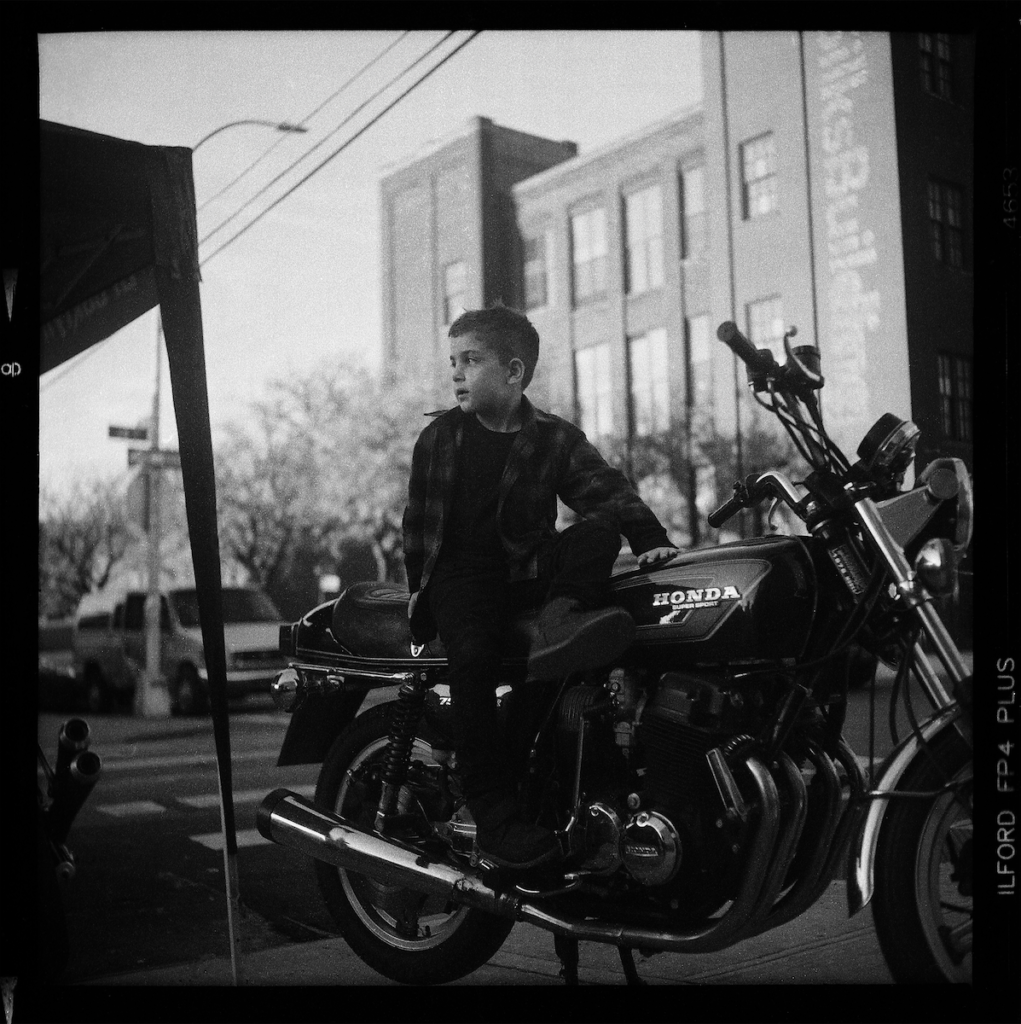
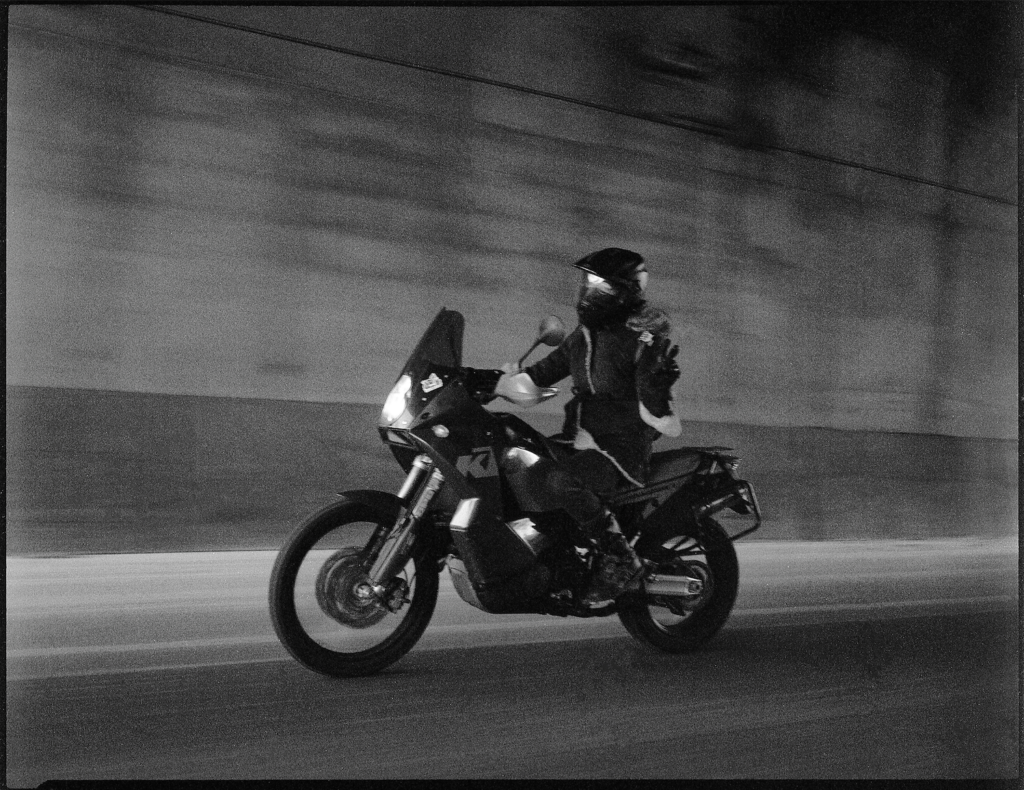
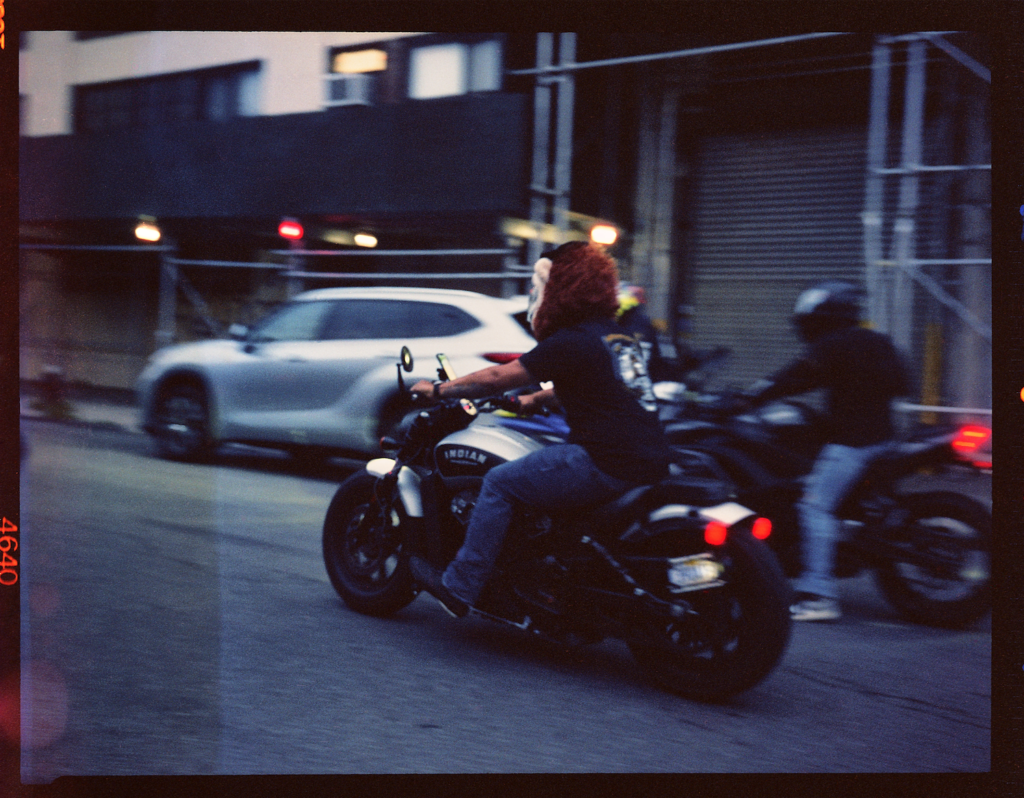
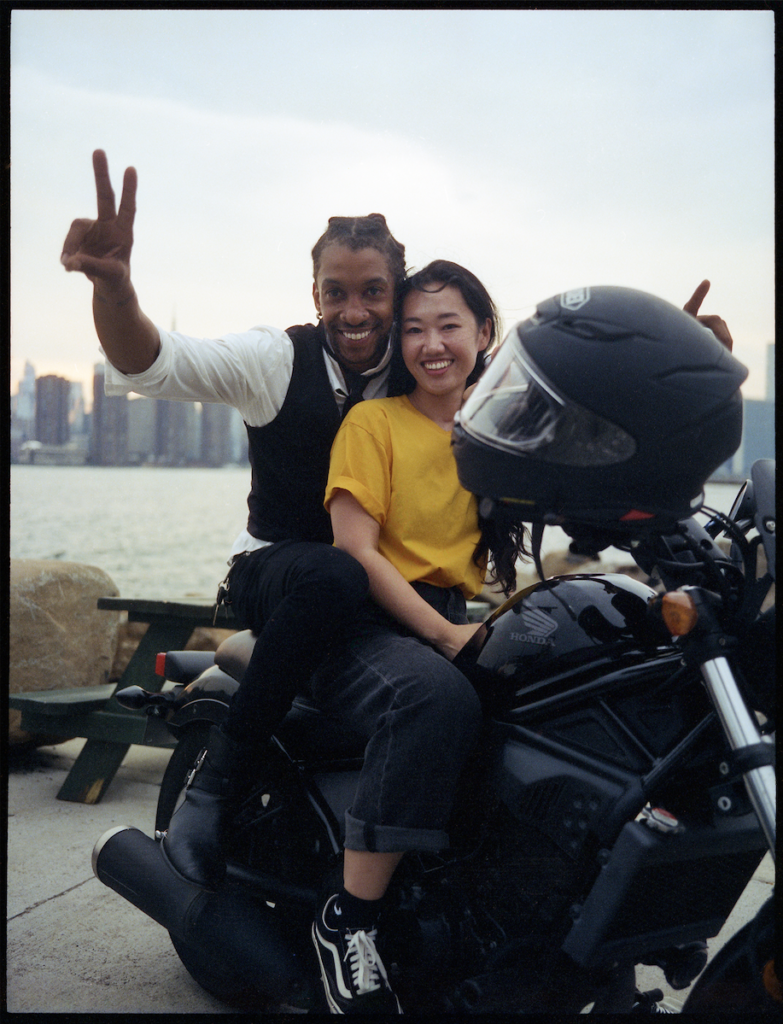
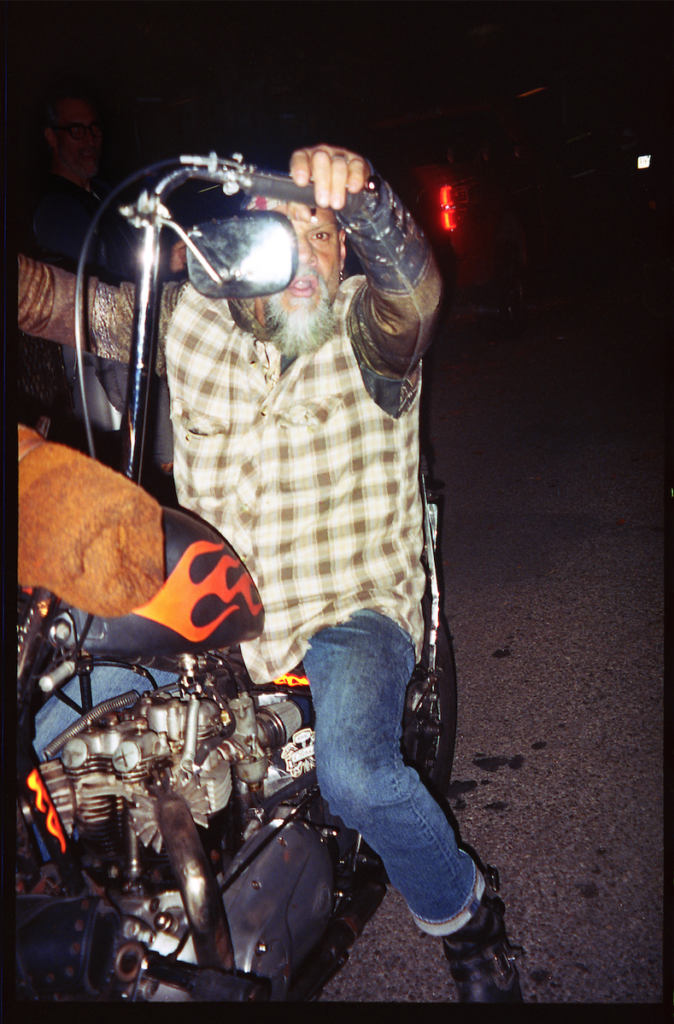
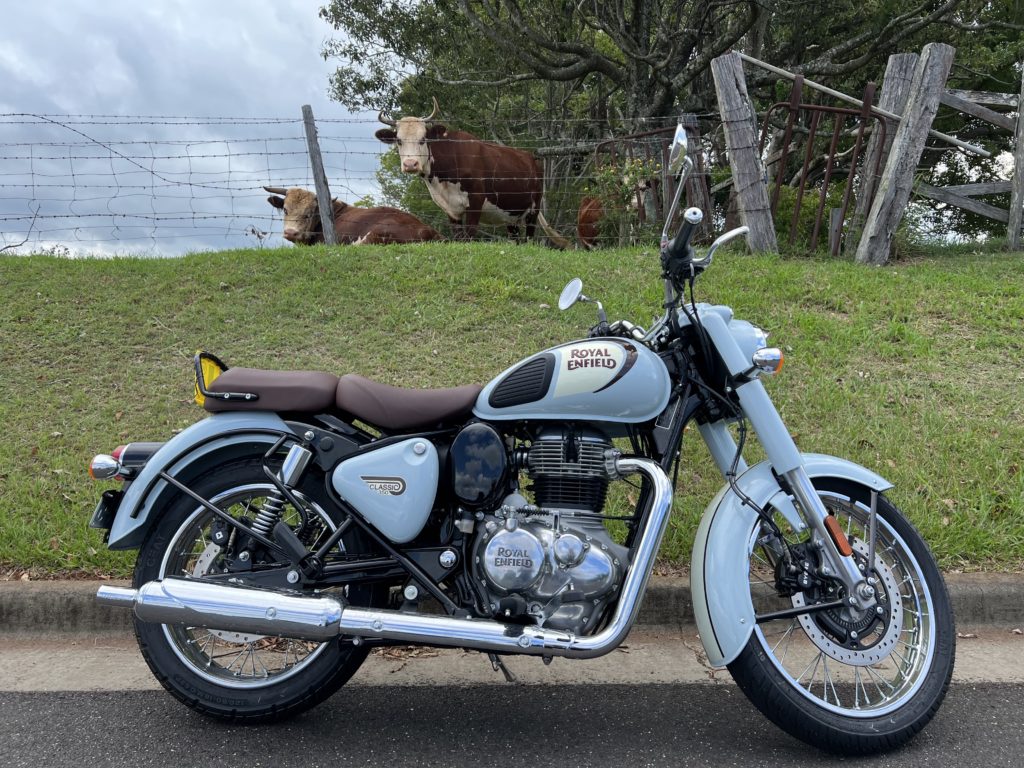
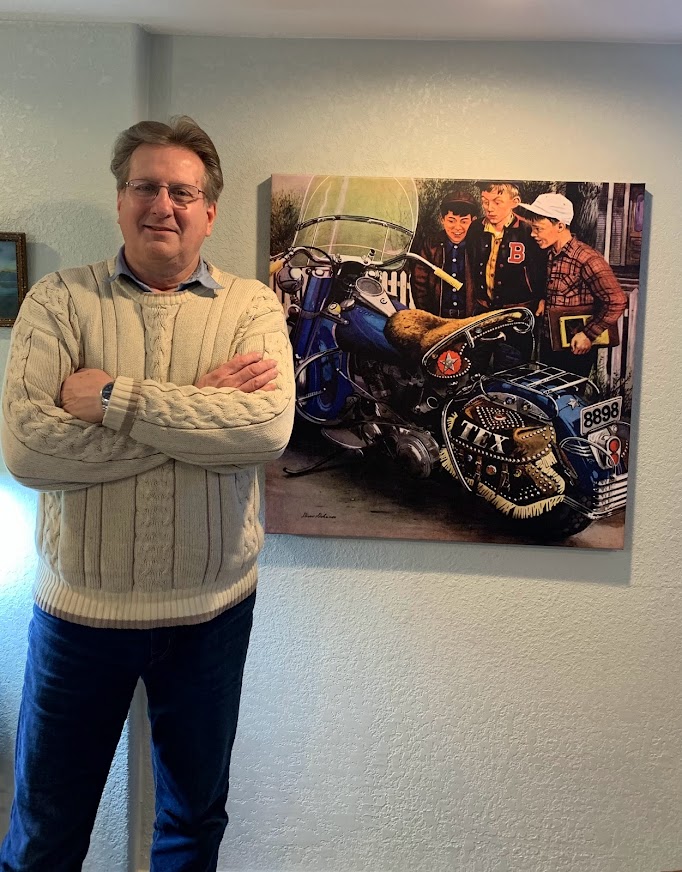
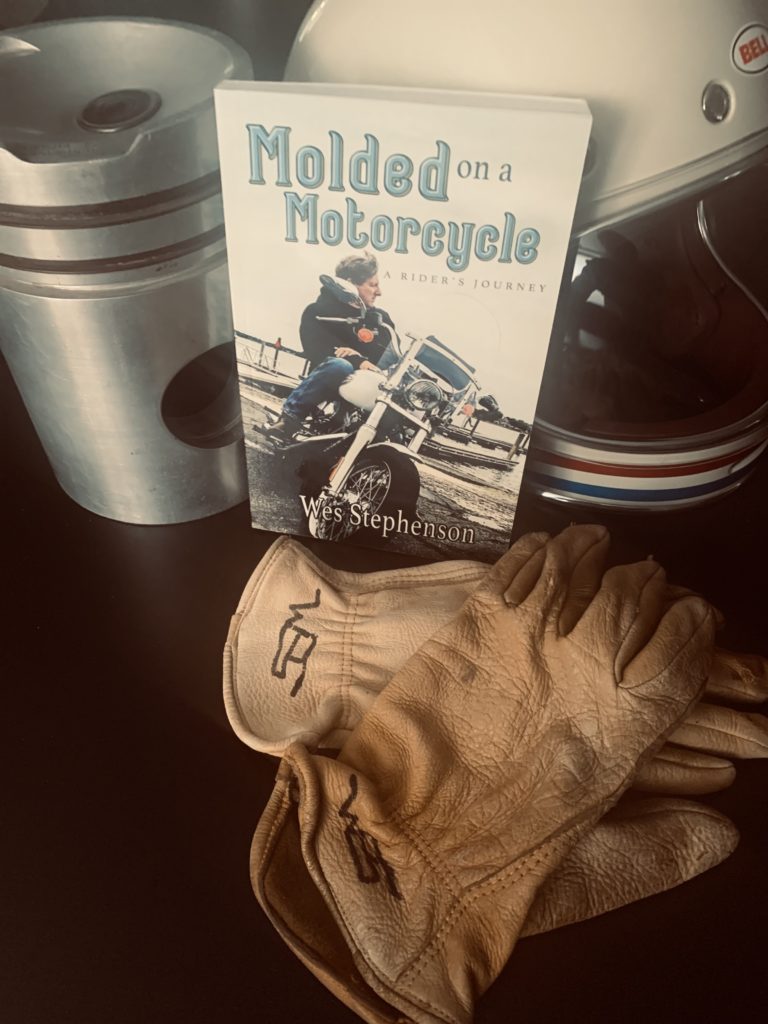
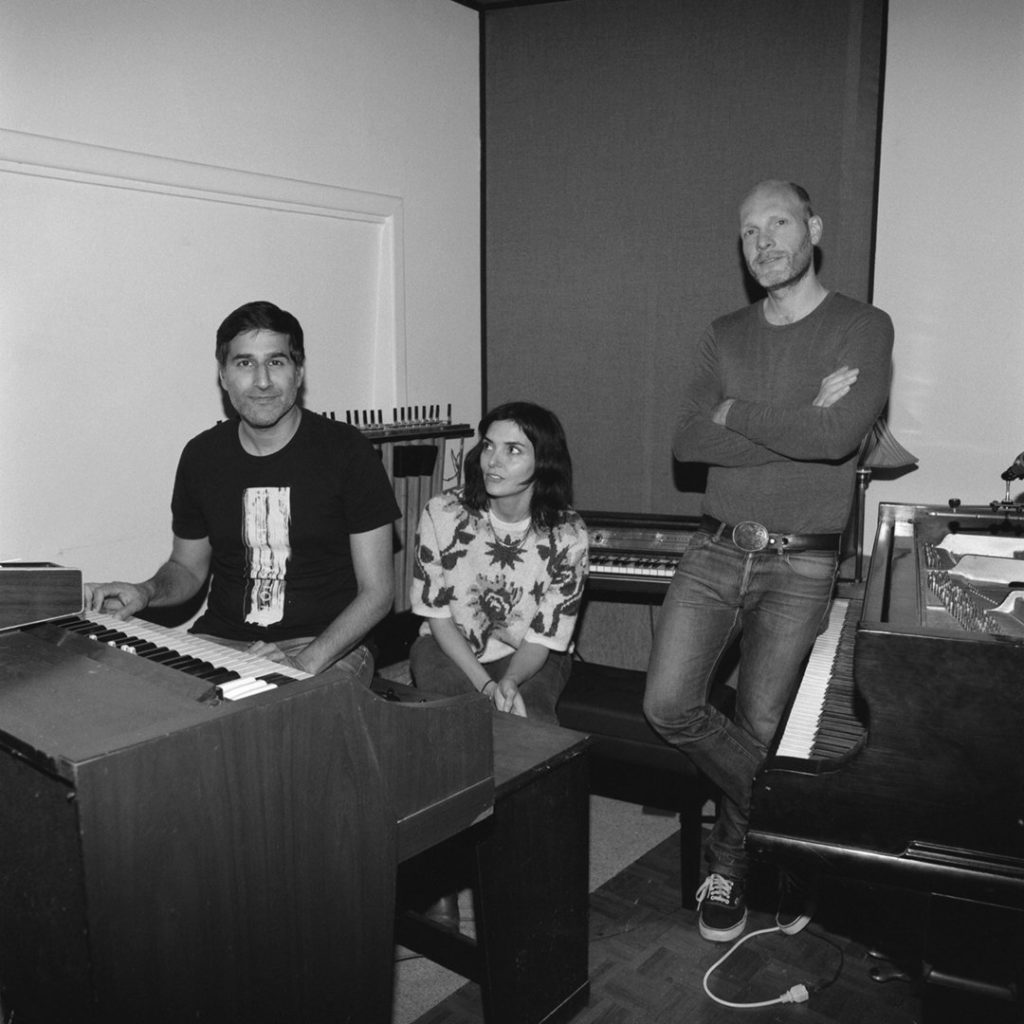
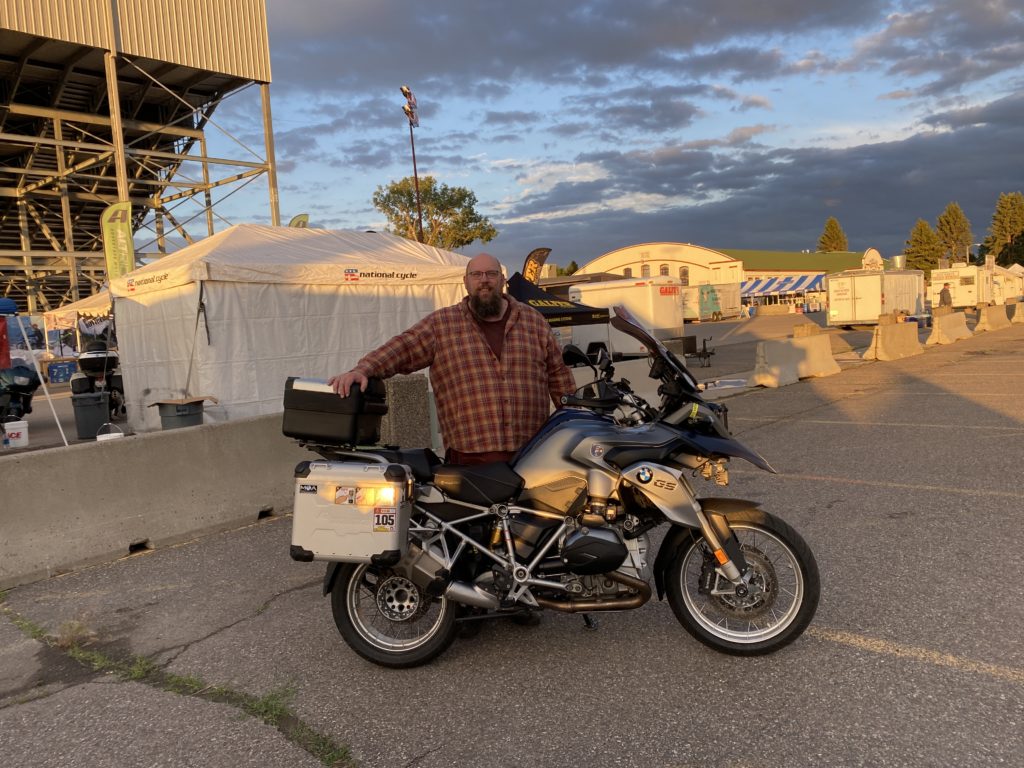
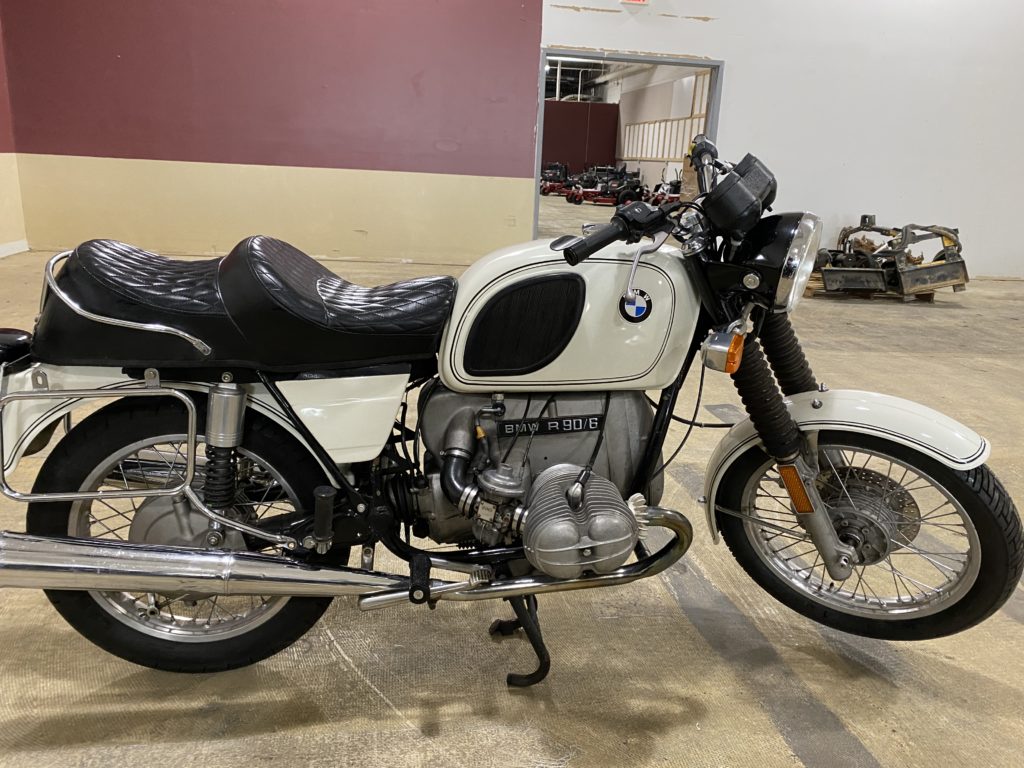
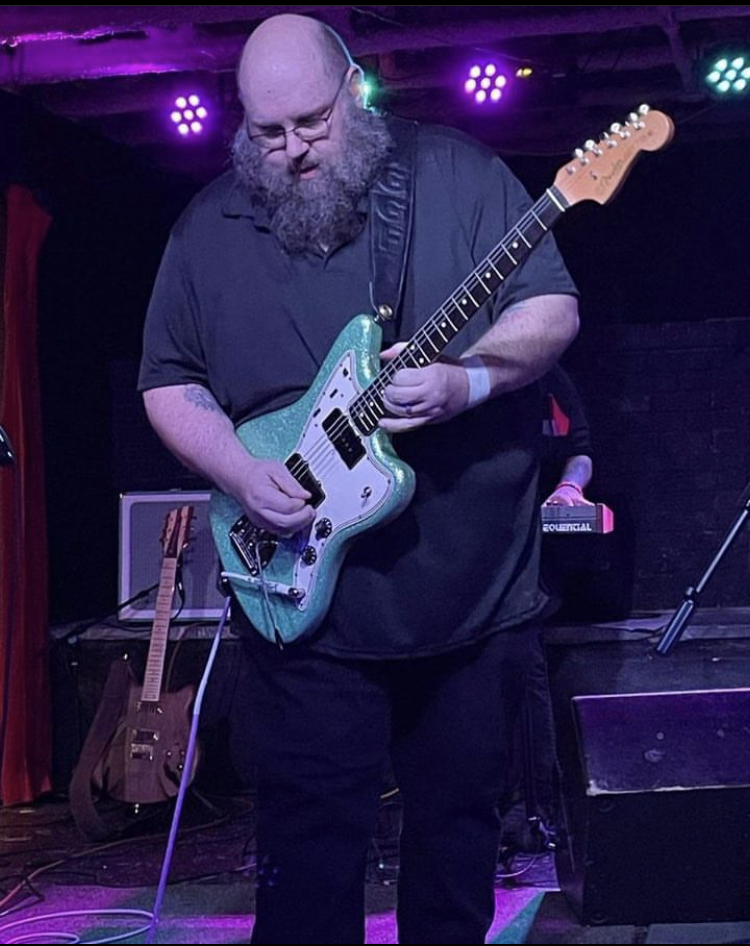
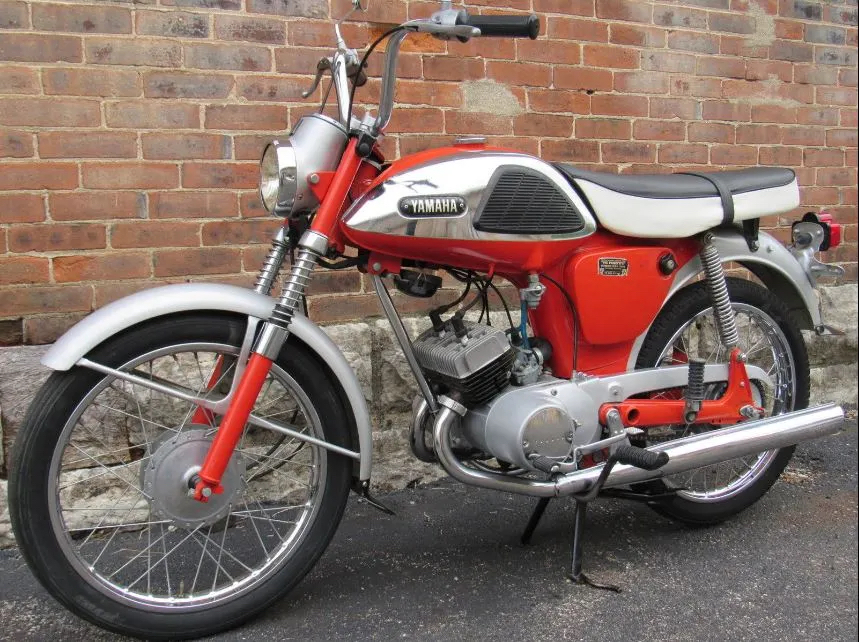
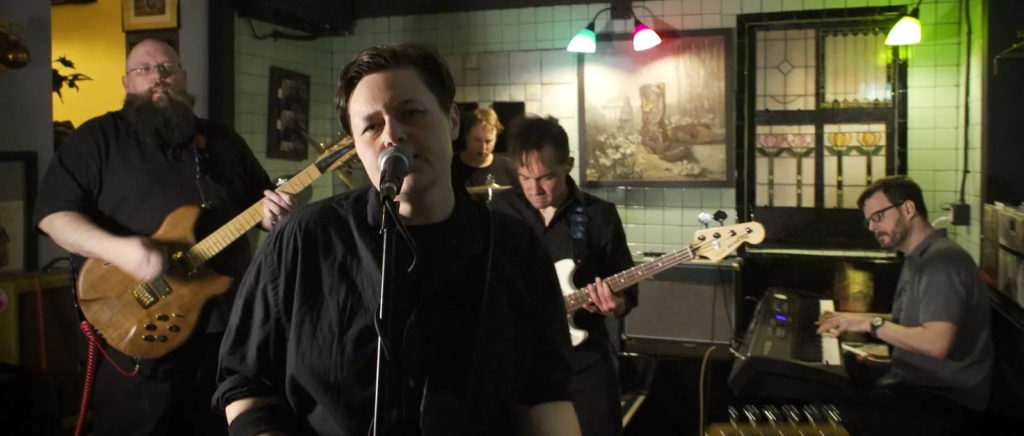
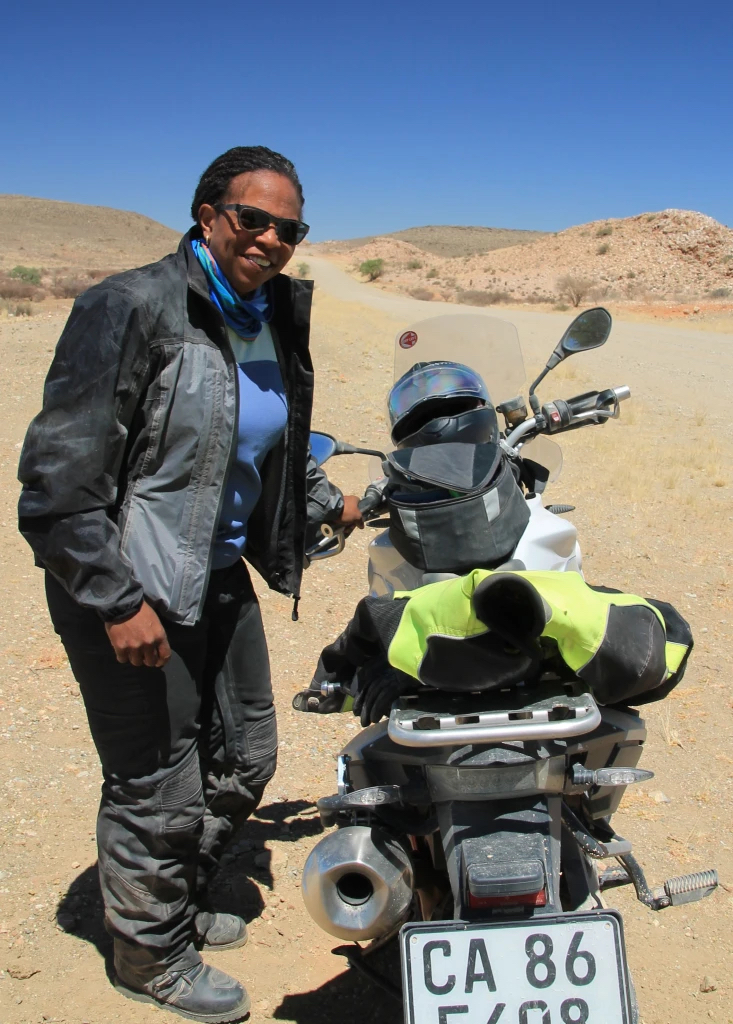
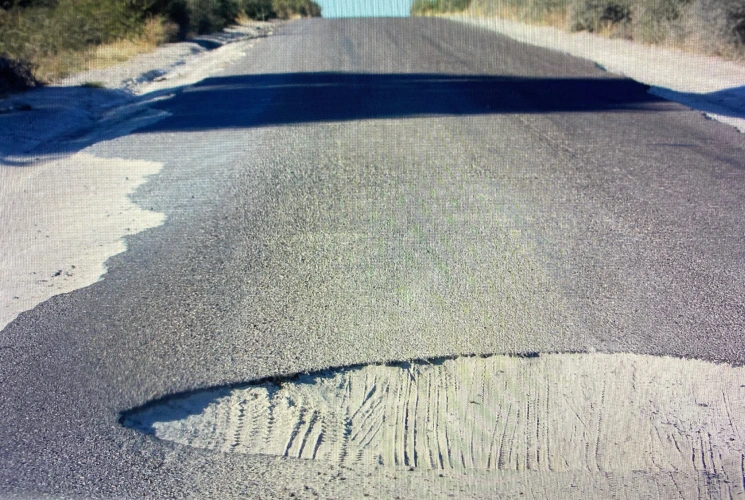
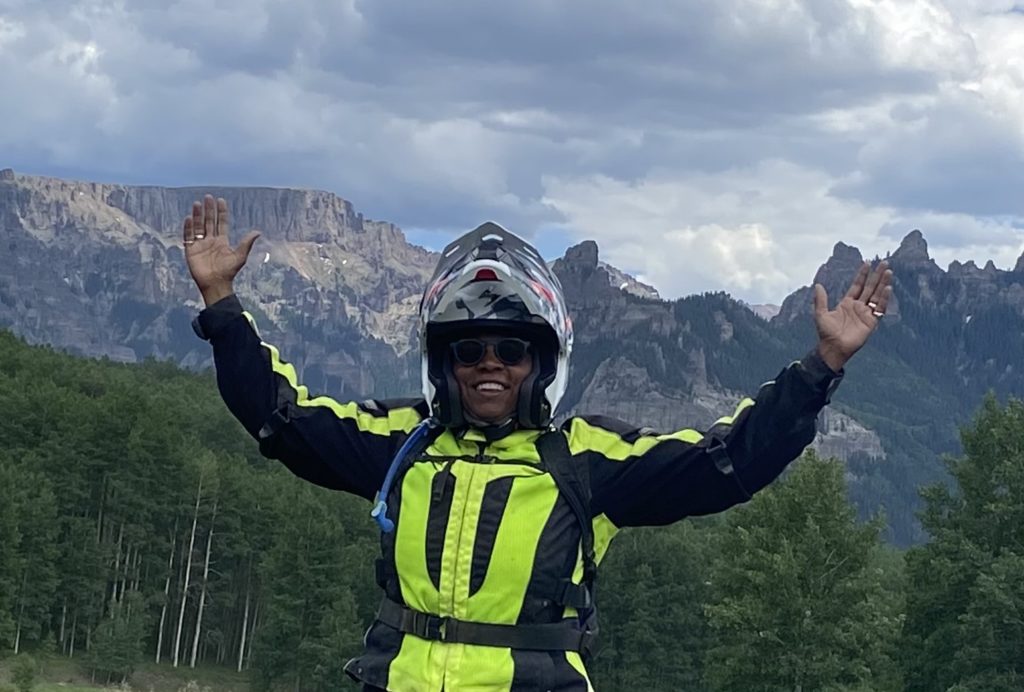
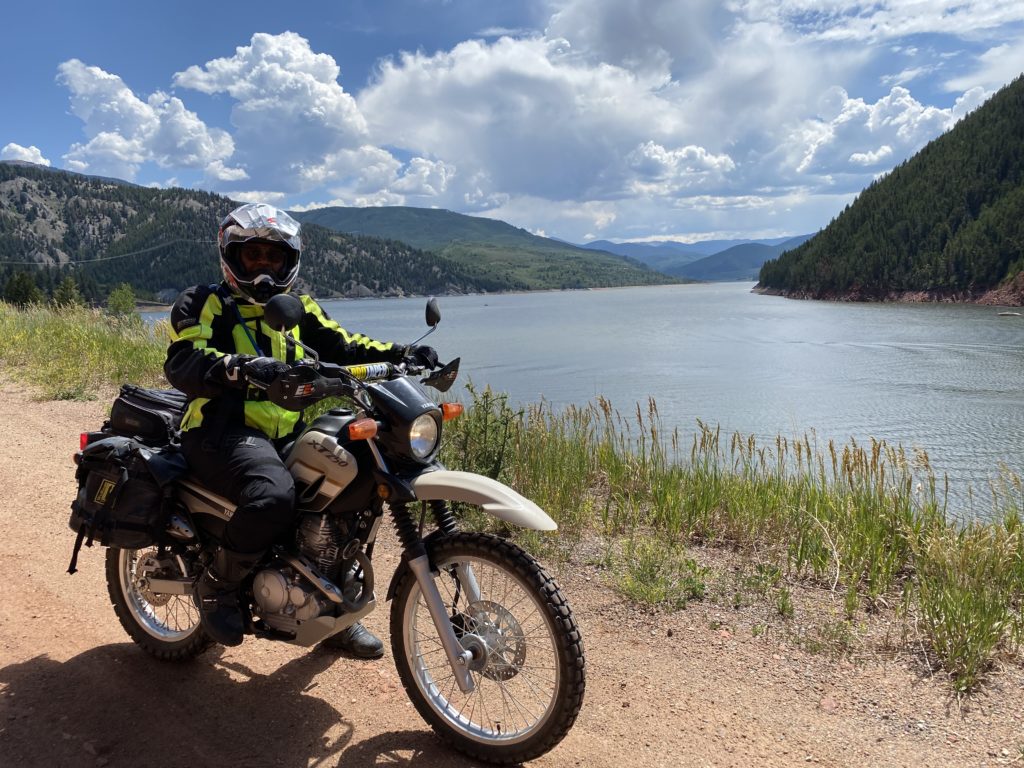
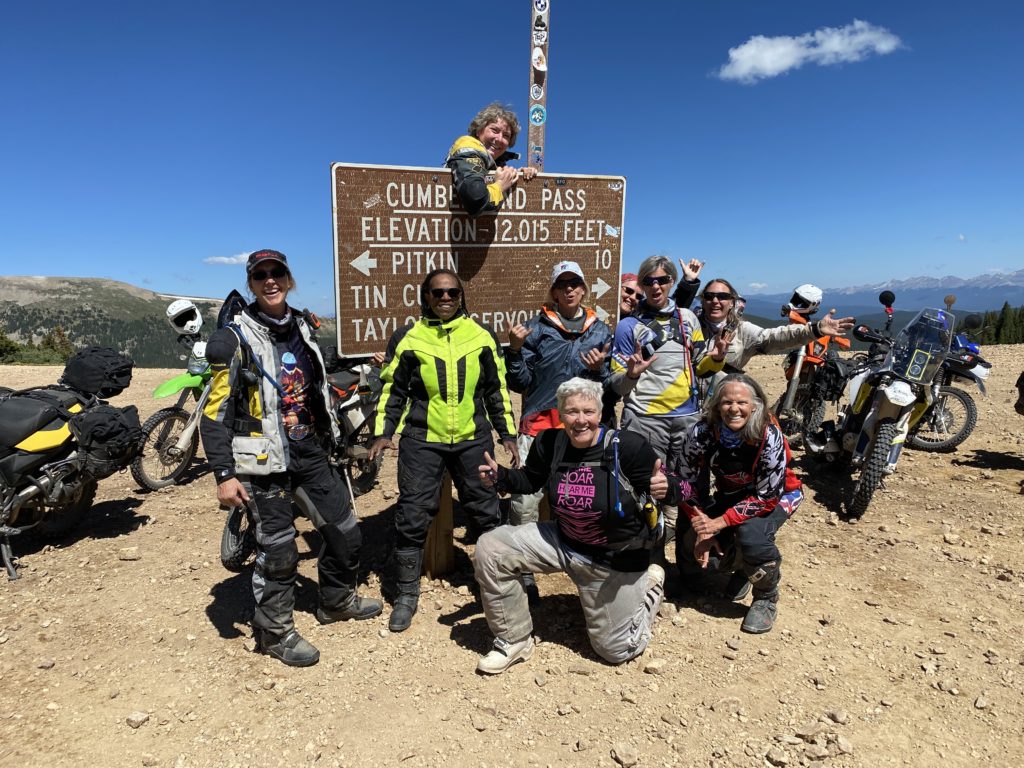
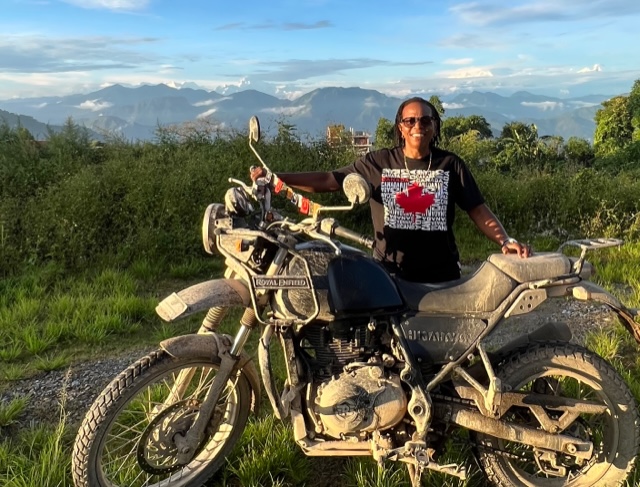
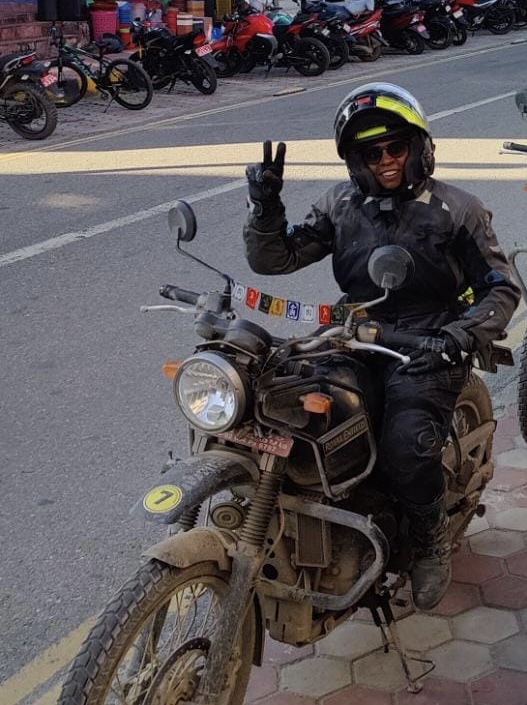
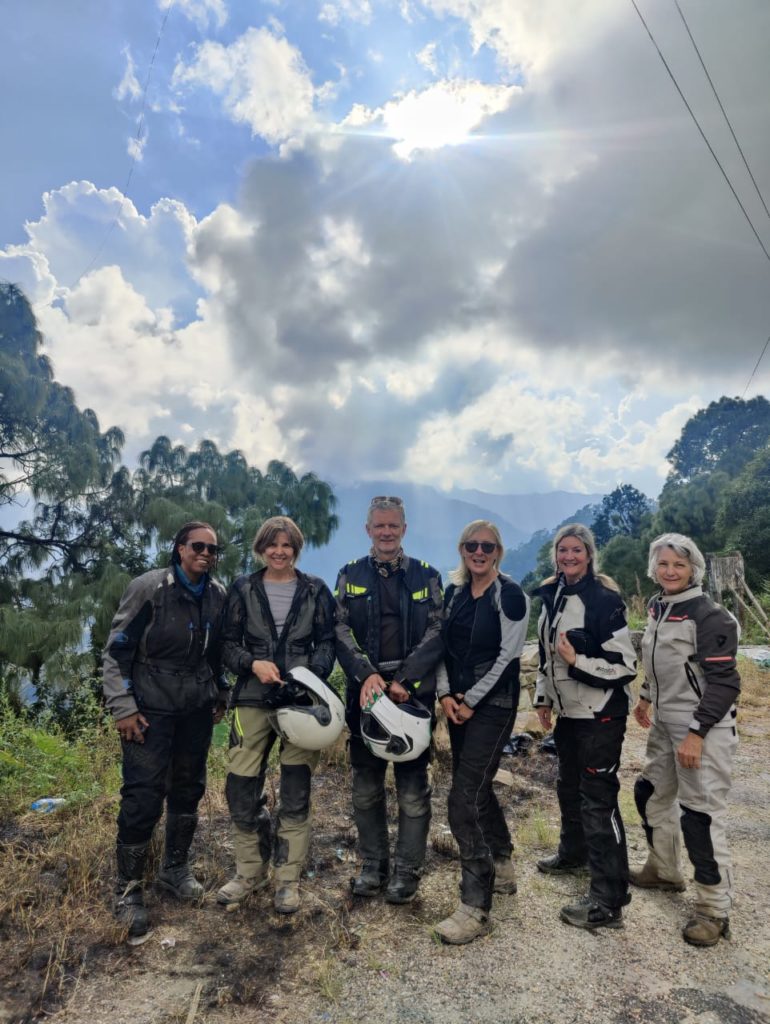

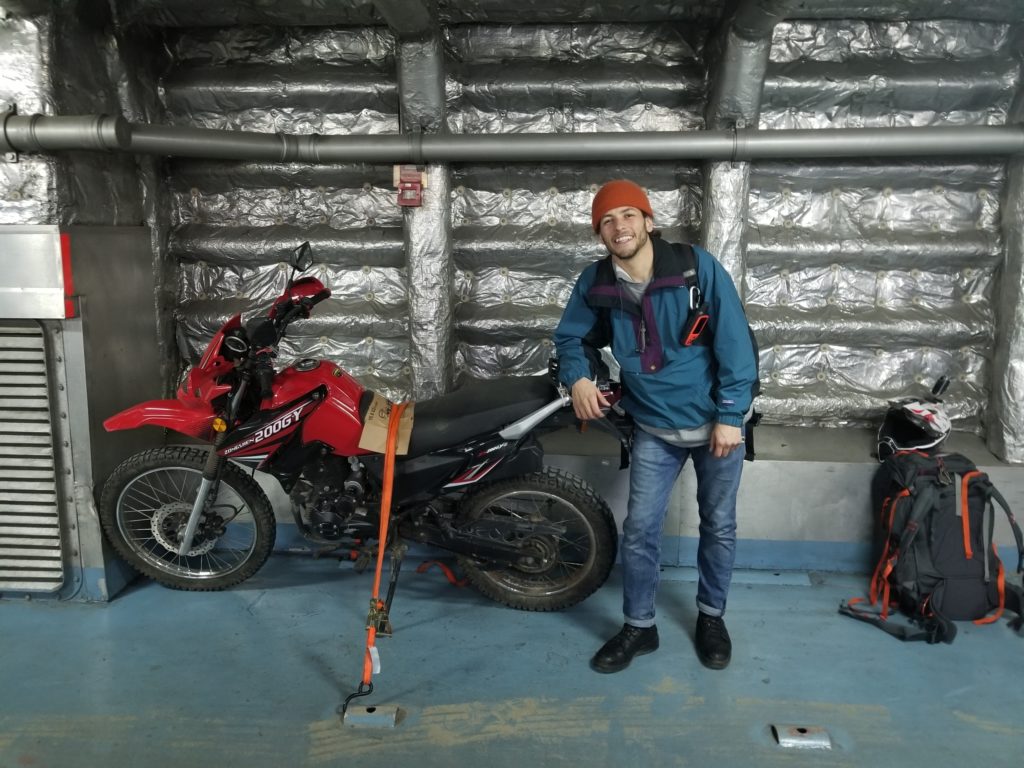
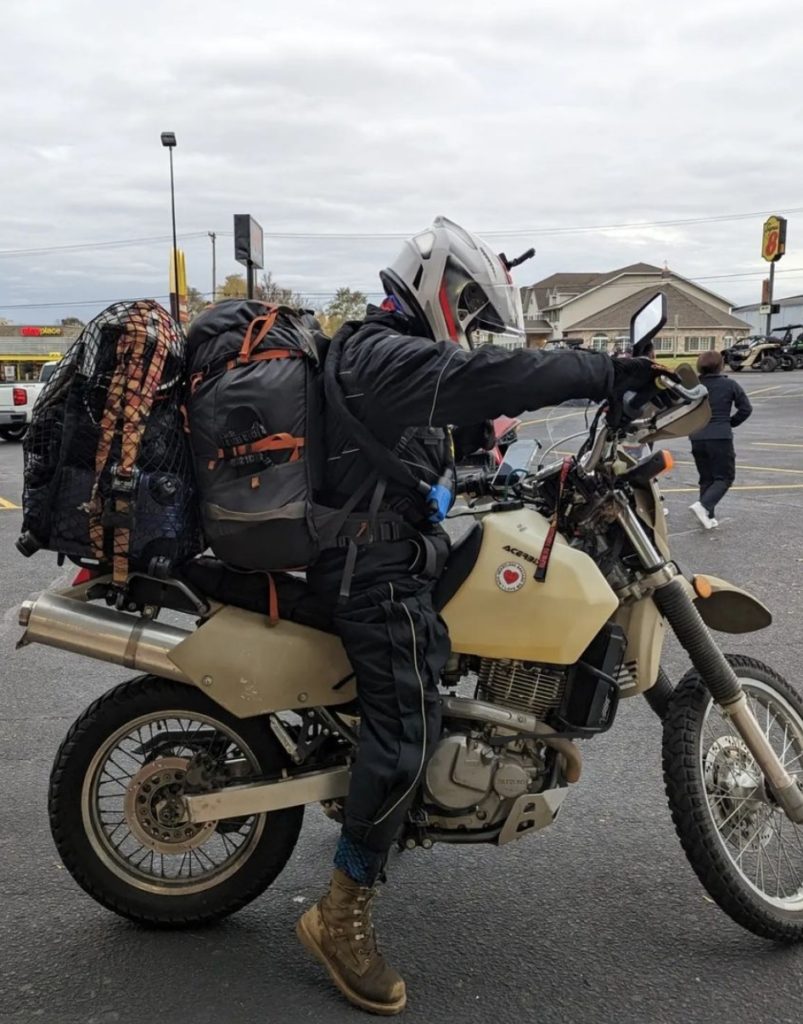
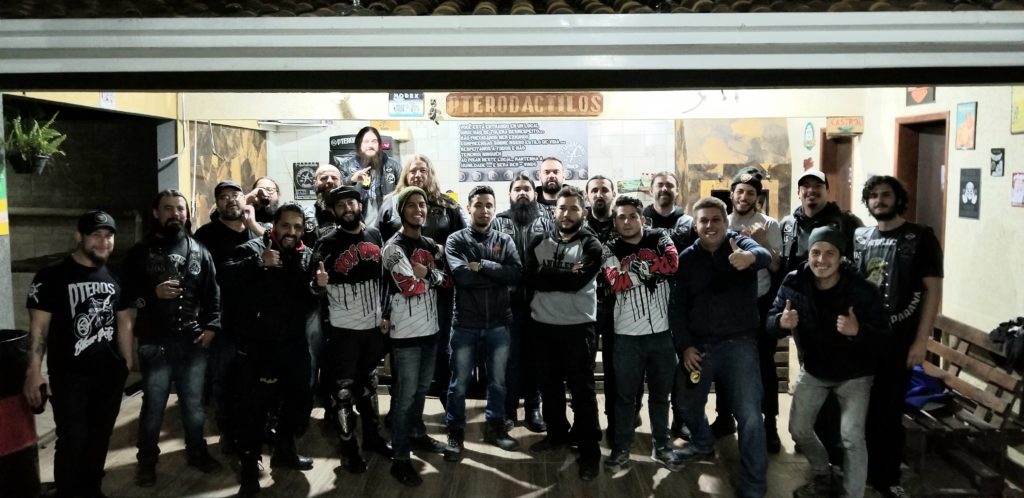
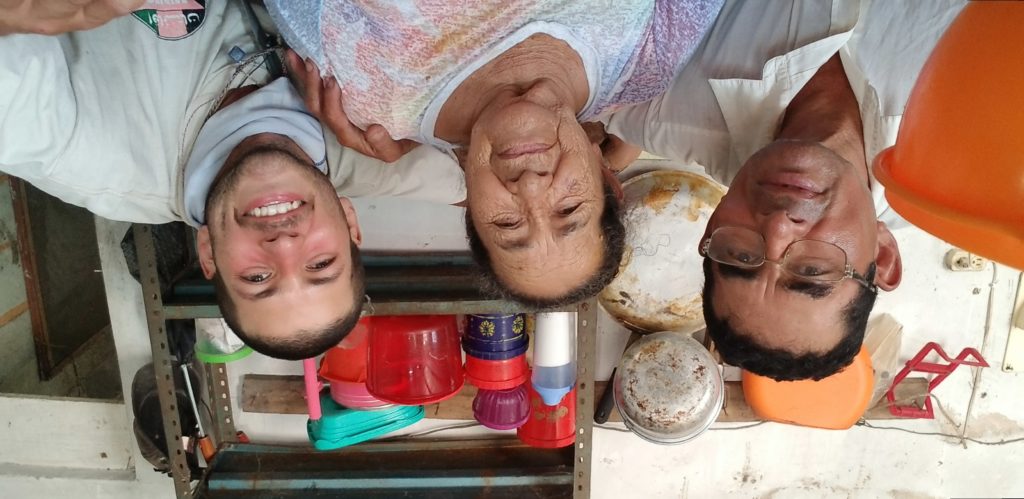
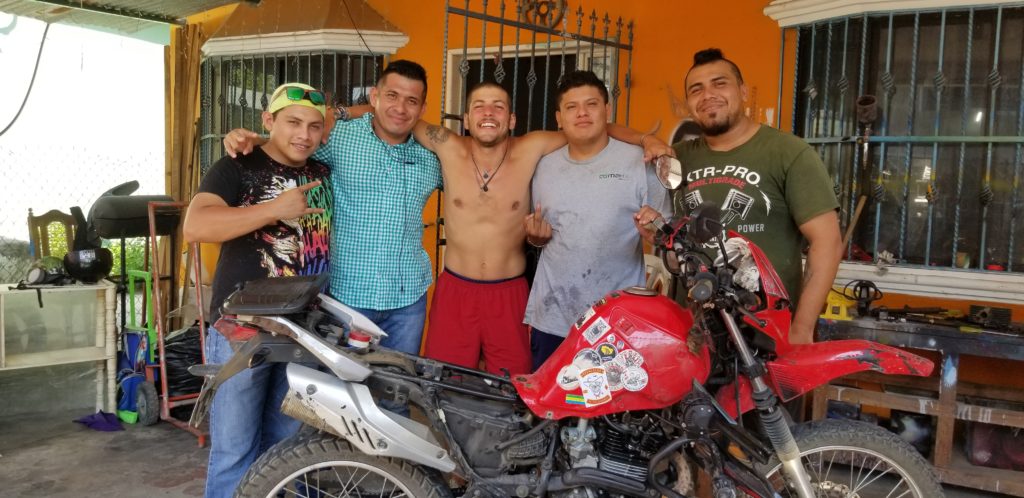
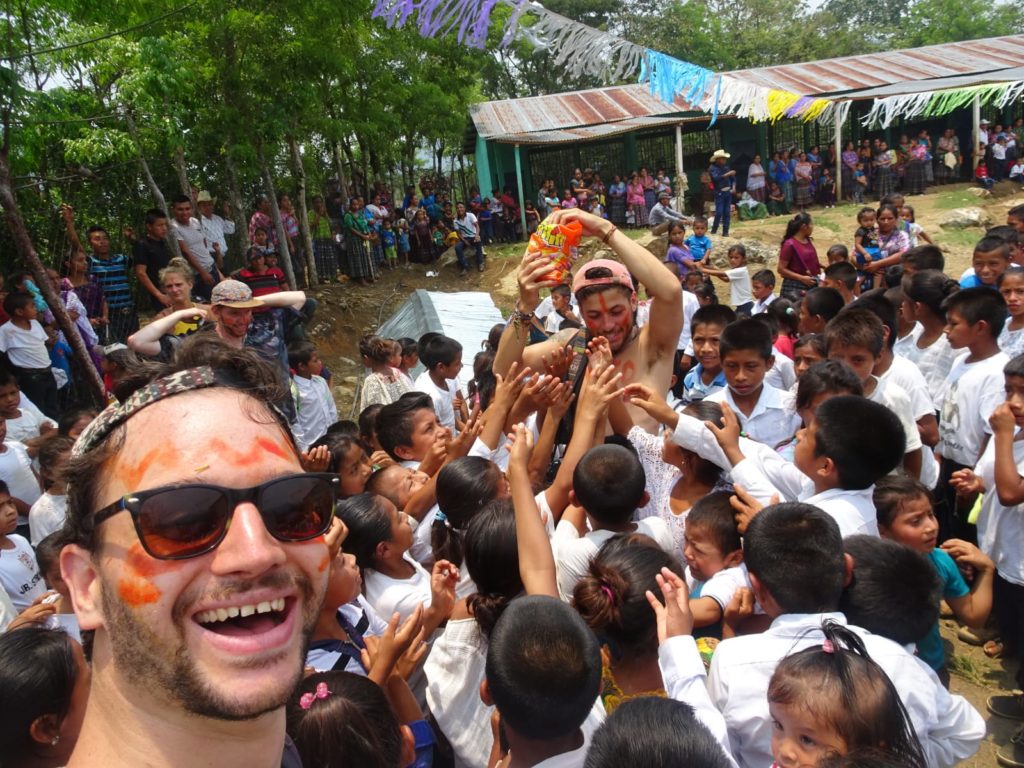
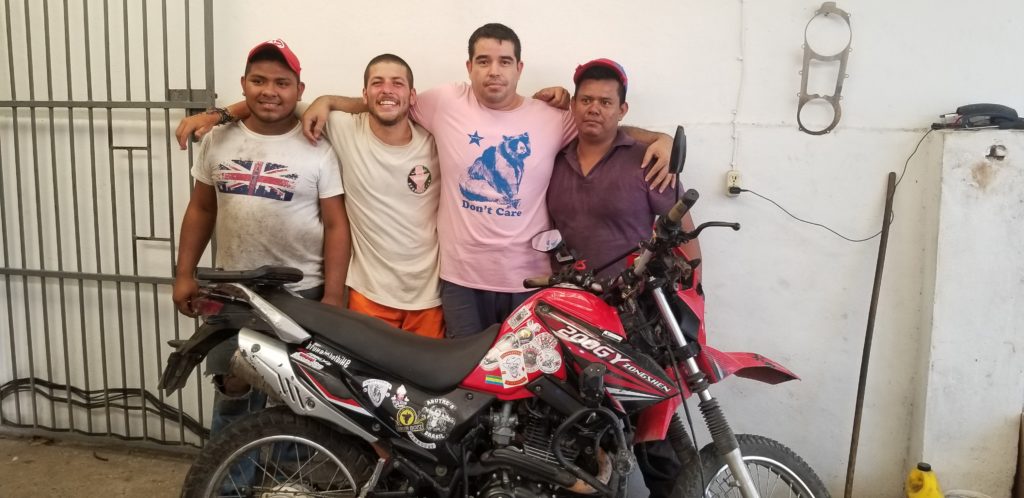
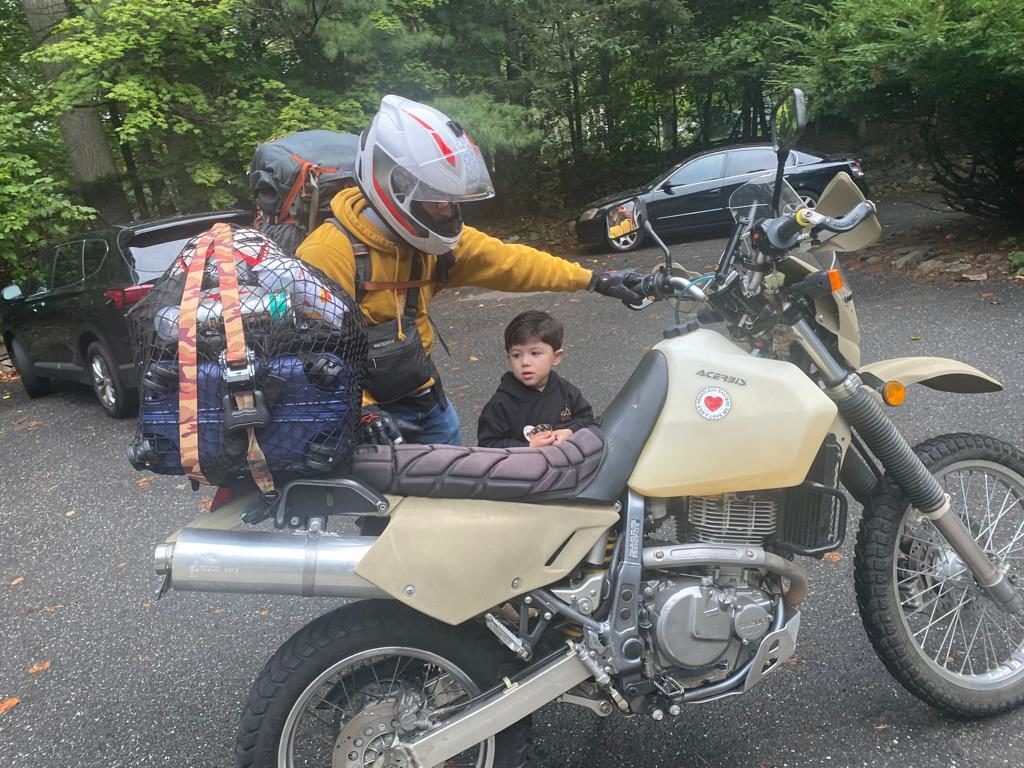
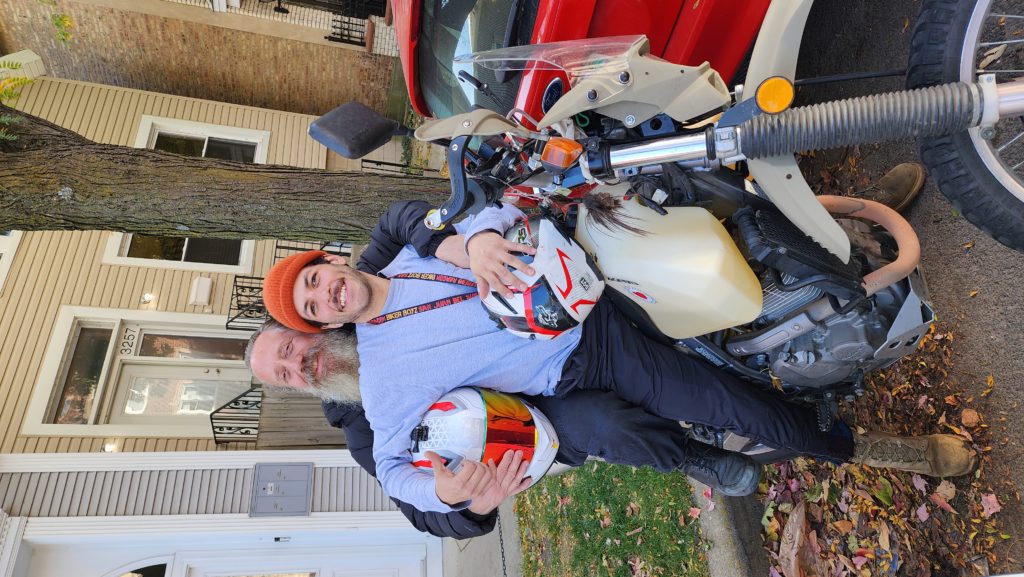
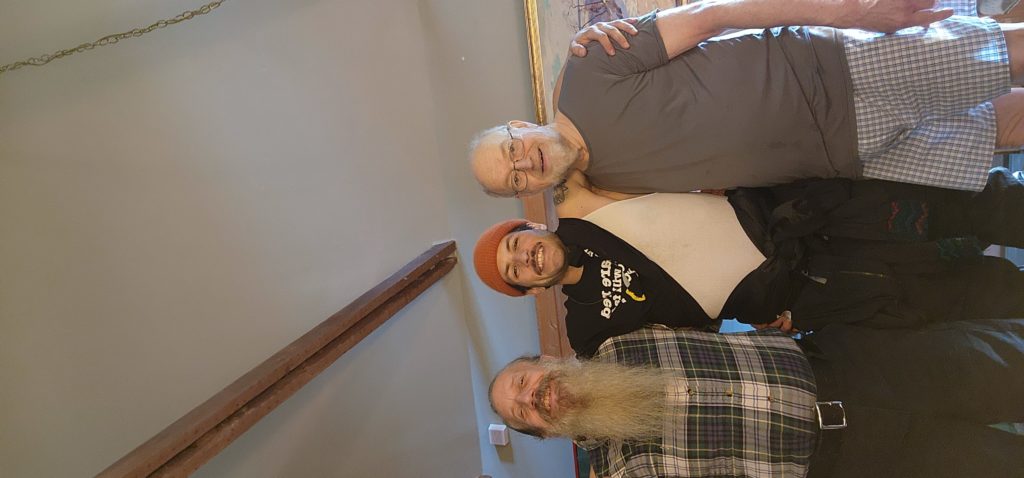
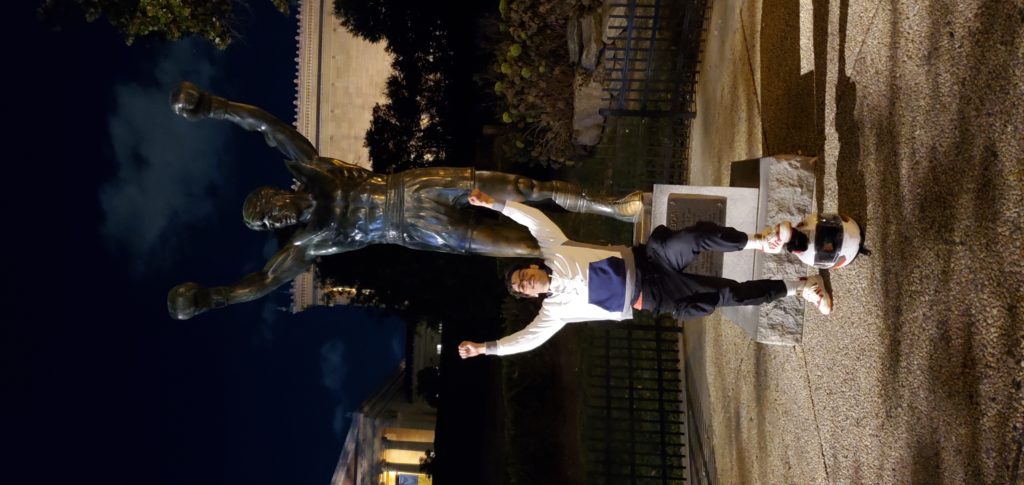

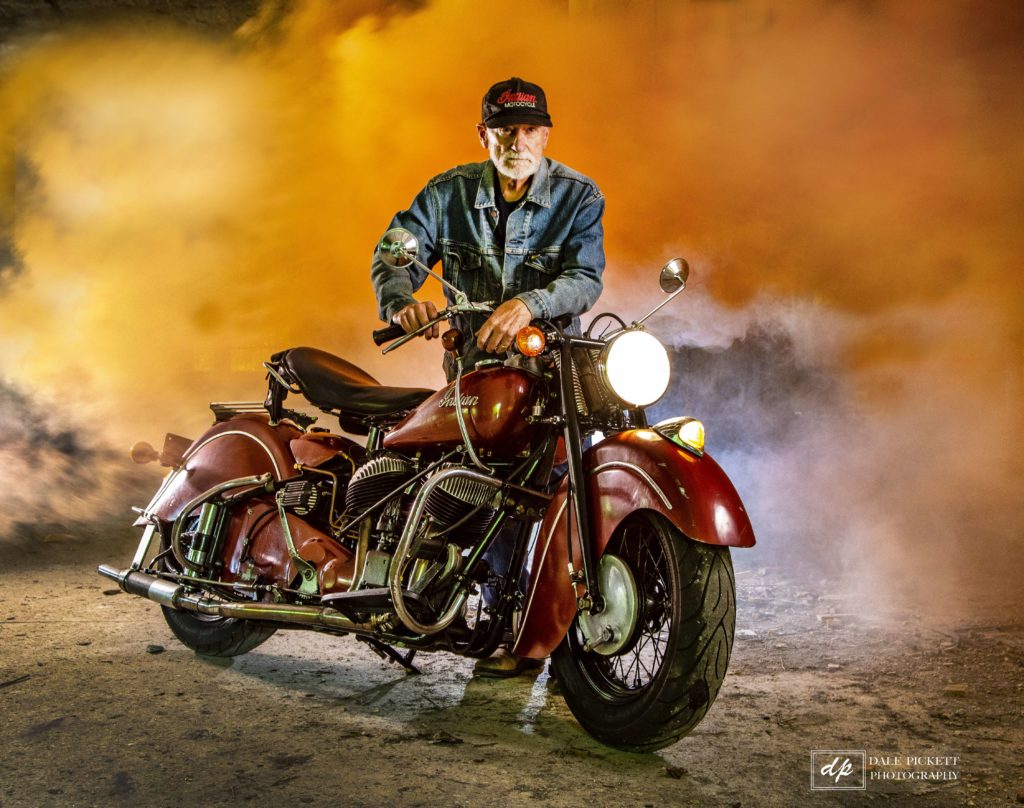
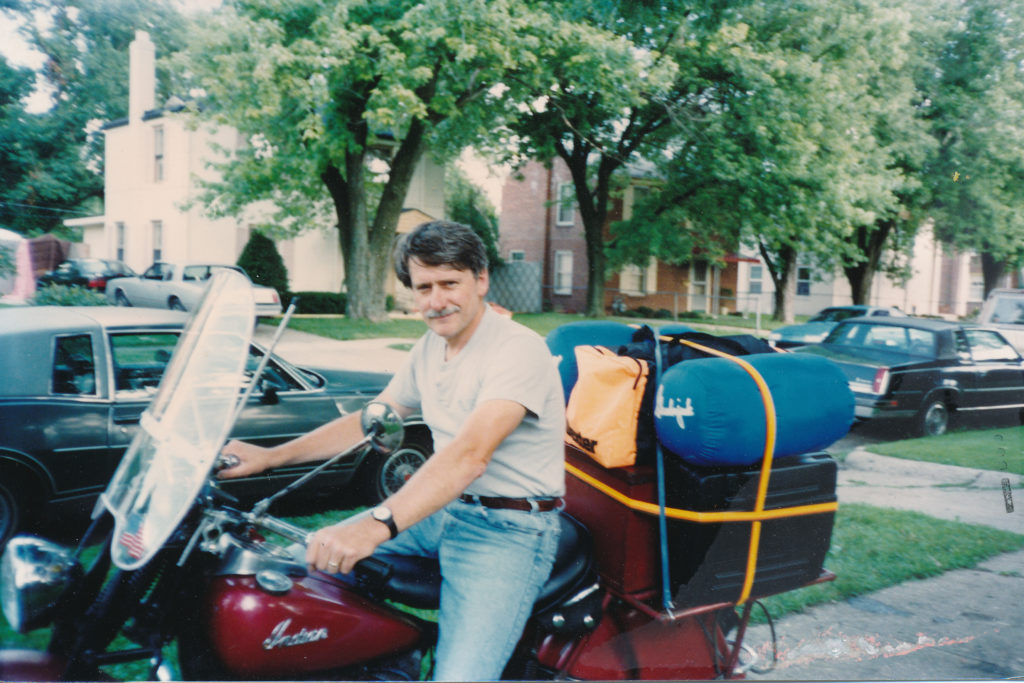
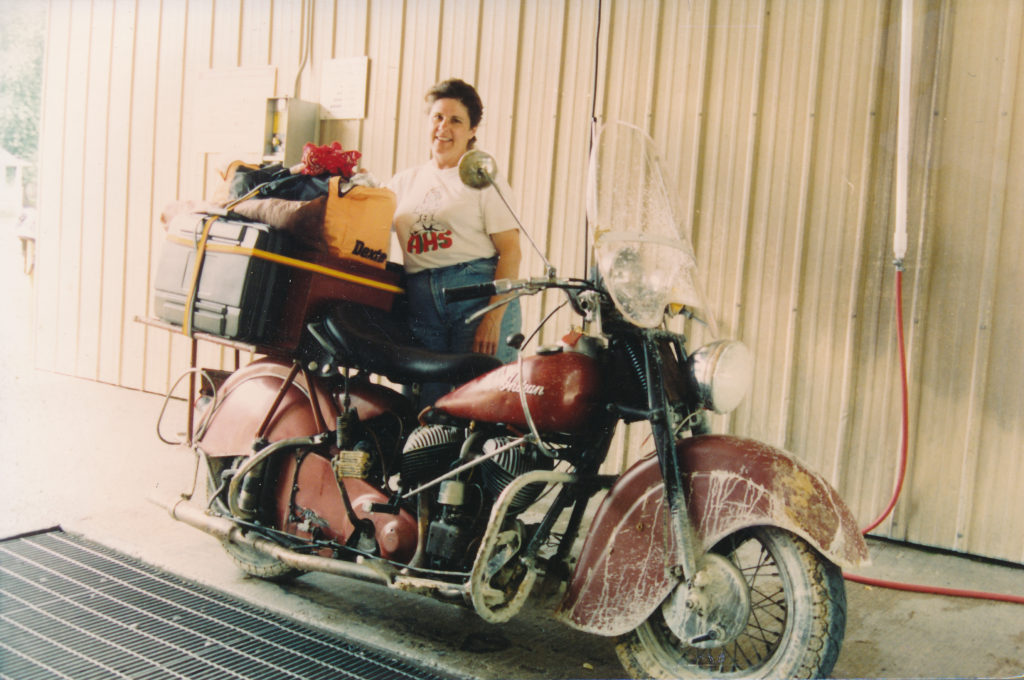
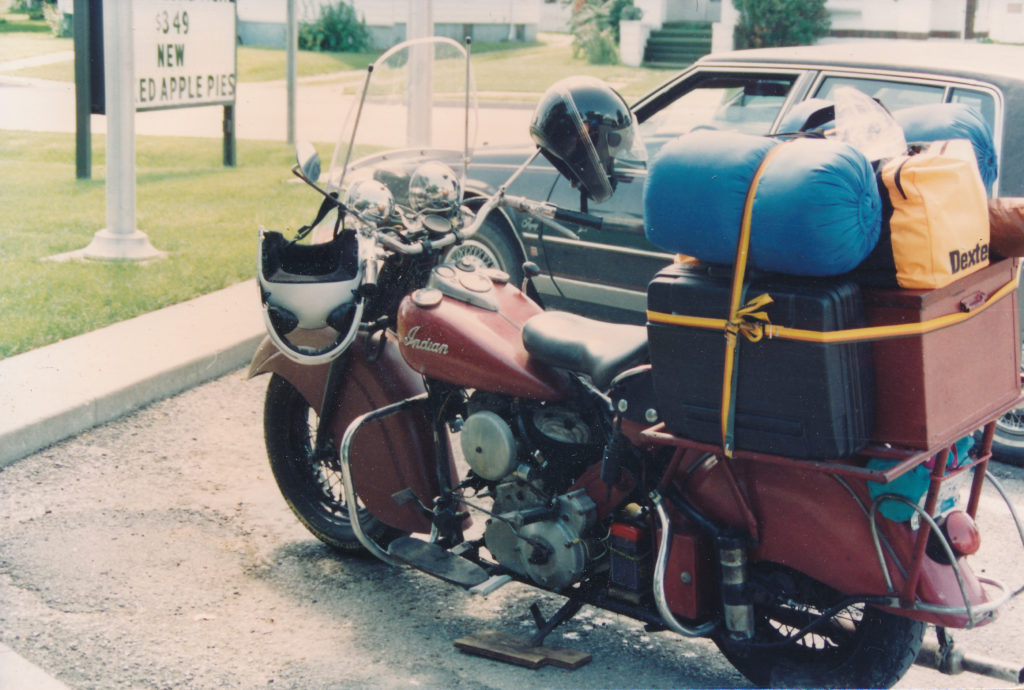
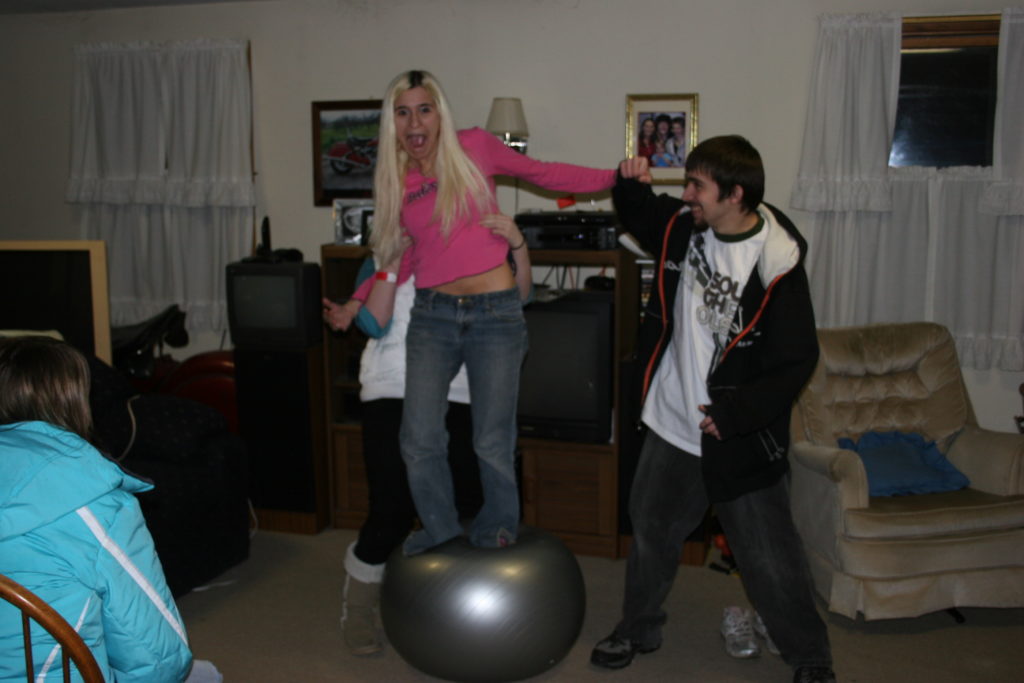
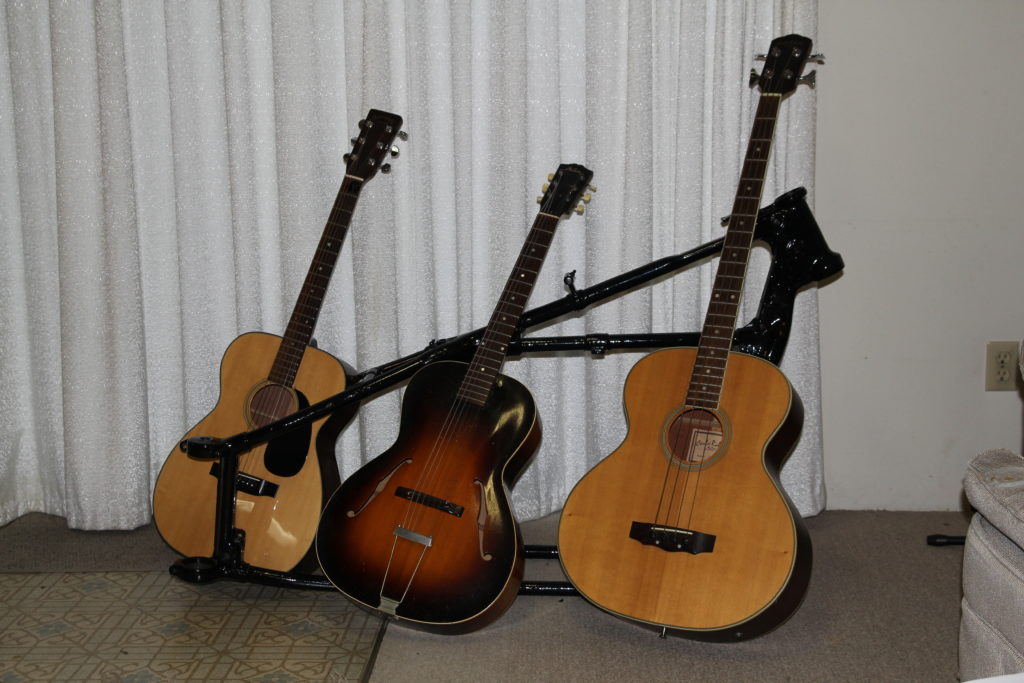
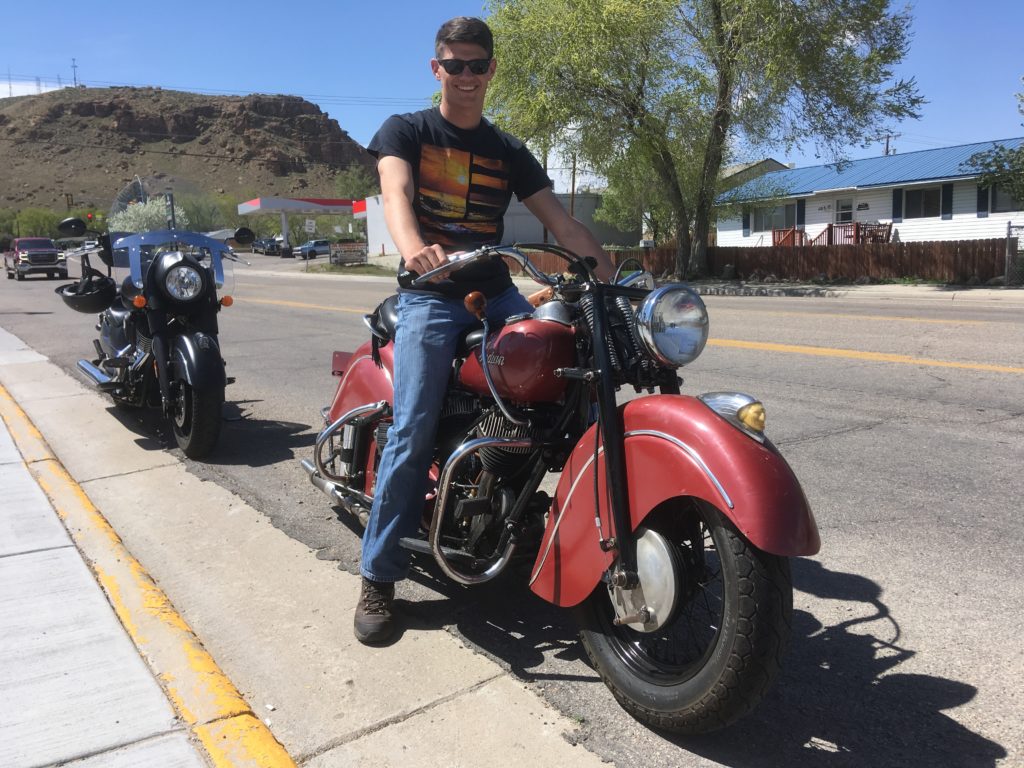
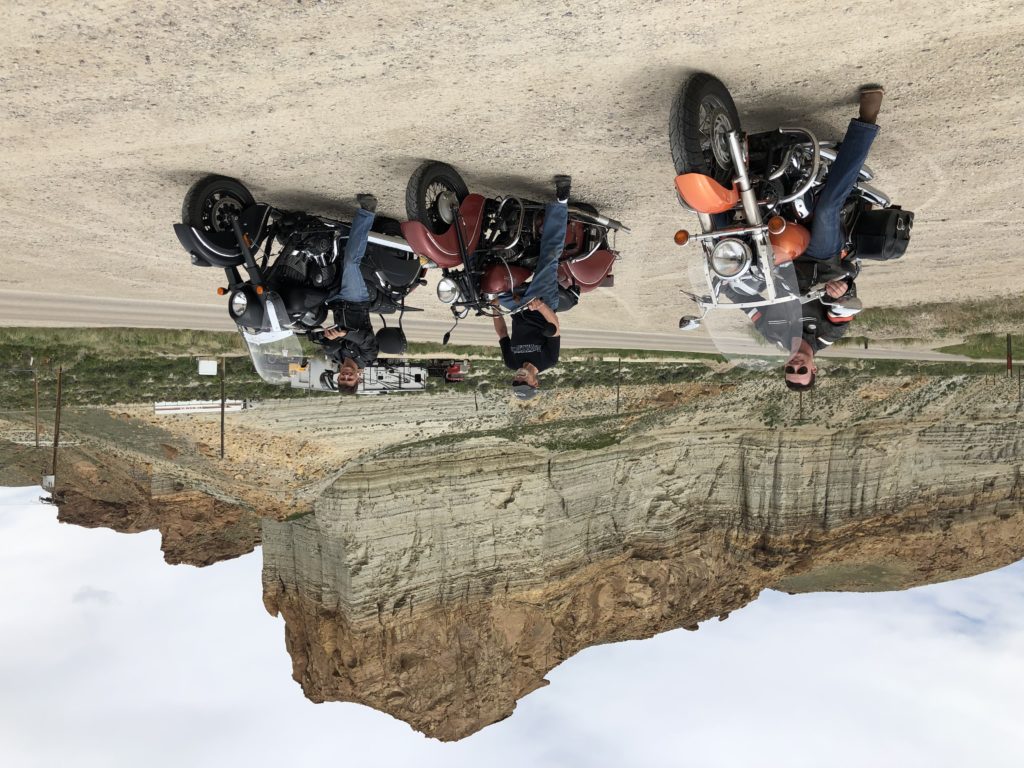
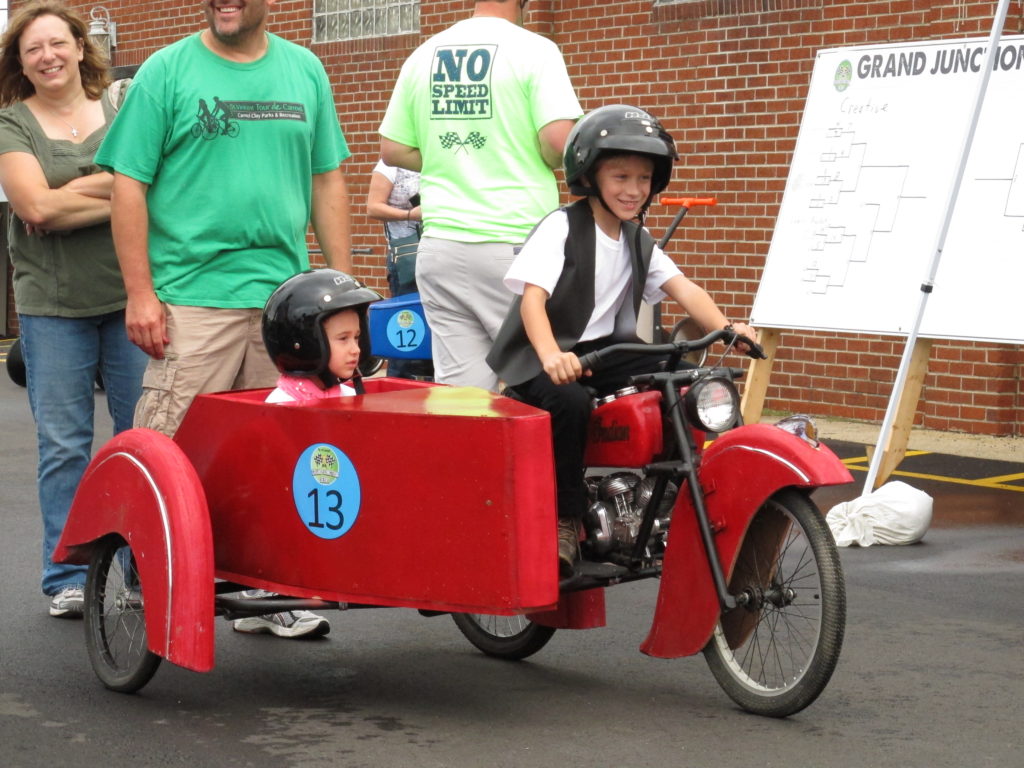
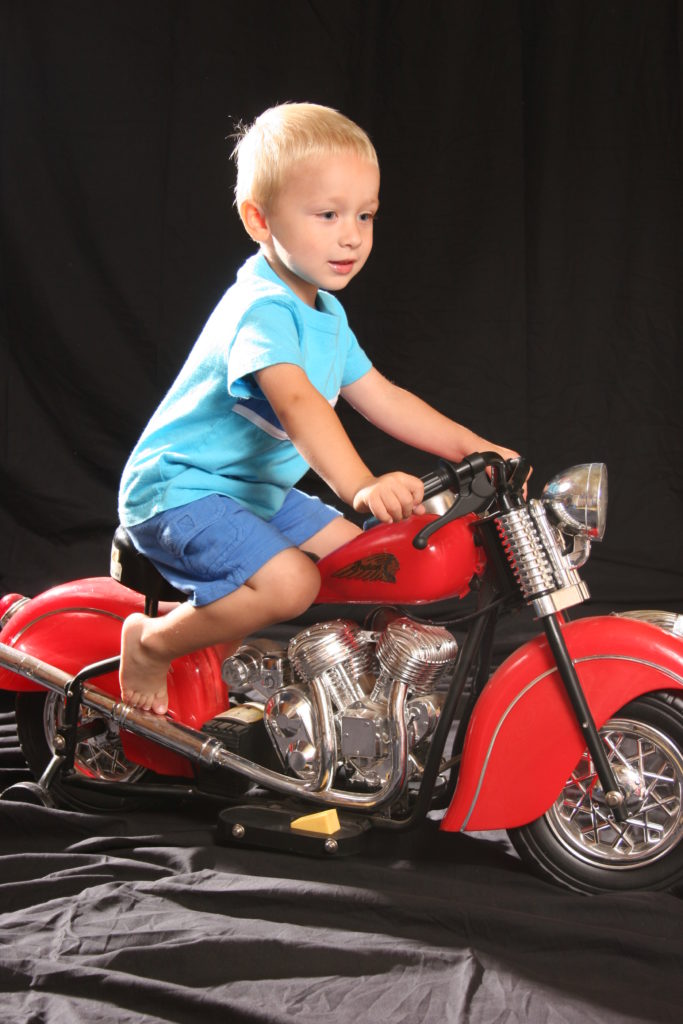
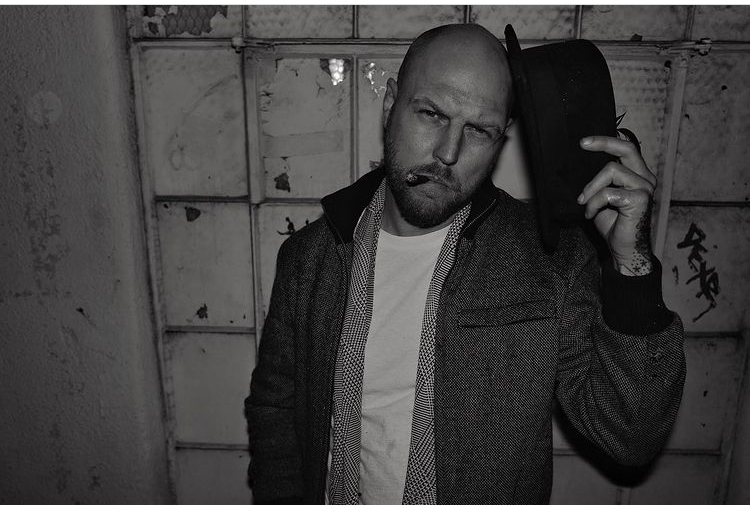
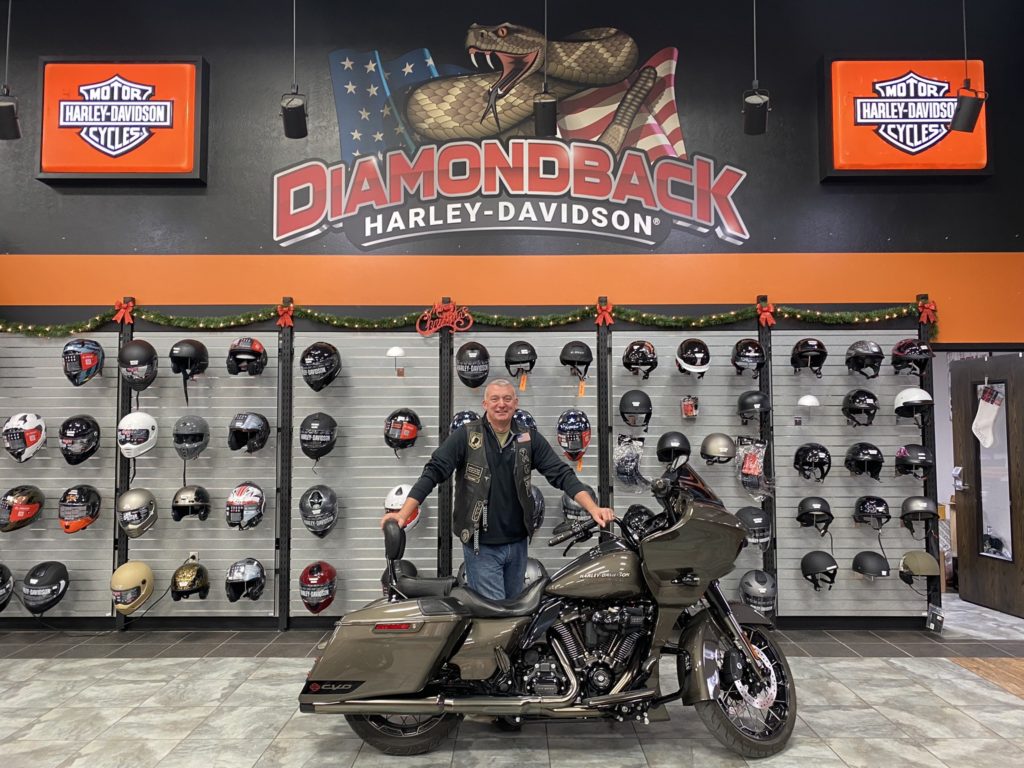
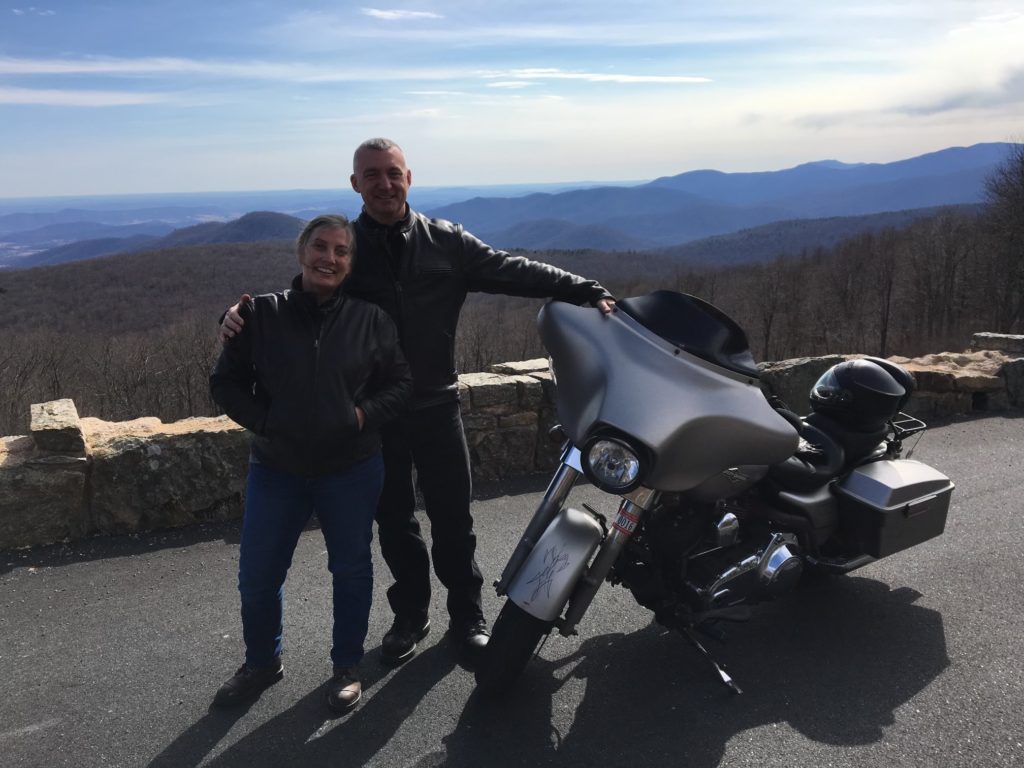
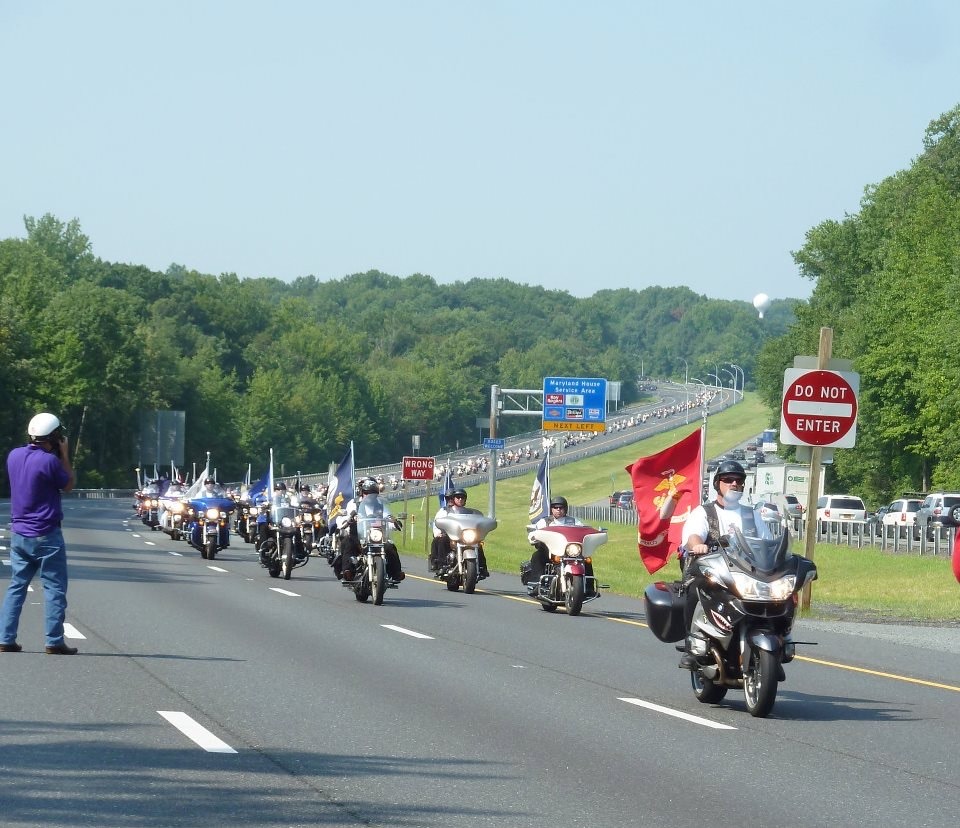
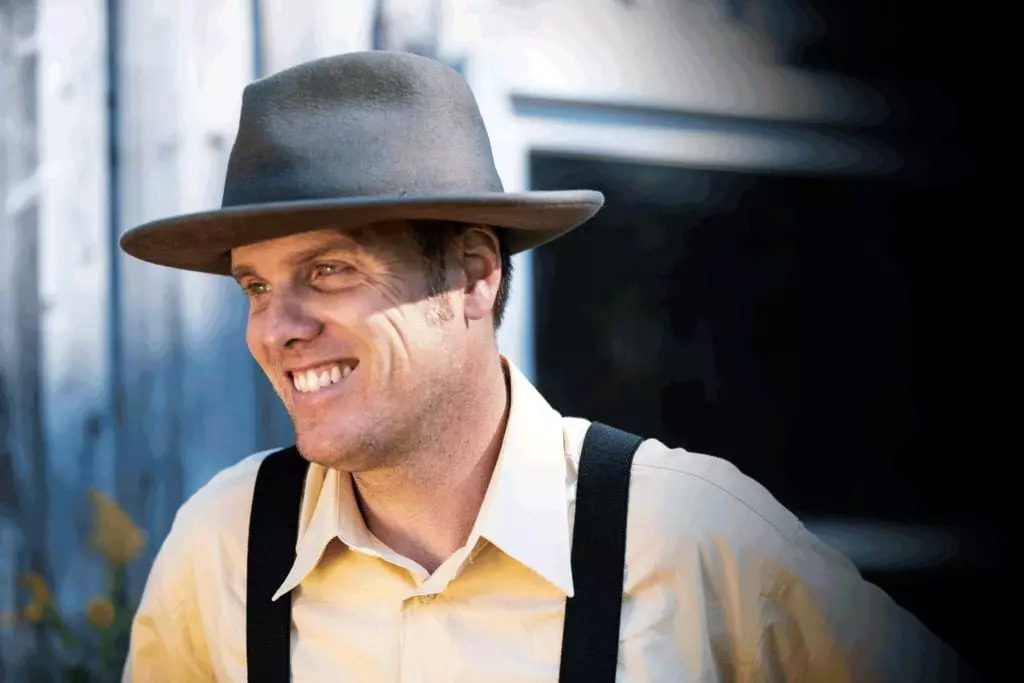
Recent Comments